A response to a Christmas letter: “Thank you for the lovely card and the second best Christmas letter. It ranks high because it does not say things like: This year Peter was awarded the Pulitzer, and Mary won the state riding championship for the third year in a row, and Martha – well, let’s just say that the Nobel committee is looking her way. Your letter talks about real life, including the toll taken by the Pandemic, including a teaching burden that has prompted an otherwise not desired retirement. The very best Christmas letter was from a former colleague at Boulder. He had been on again and off again with his wife. His letter began, “This year Olga went crazy again ….” Now THAT is an interesting letter!
December 27, 2021
In spite of the pandemic, Abigail and I braved forth to attend the Eric Voegelin Society meeting in Seattle. Its members are truth-seeking, spiritually open thinkers. As we arrived, attendees were dropping like flies. One scholar, there for a panel discussing his book, reported that every single panelist had reversed course and would be AWOL. It felt bizarre. Sometimes the two of us were a half or third of the audience.
It did give us a chance to know better the select few who did attend, but also to visit Abigail’s dear friend (we’ll call her “Arlene”) who goes all the way back to the New York High School of Music and Art. There are, indeed, no friends like old friends. Their conversation was as familiar and lively as if they had spoken just yesterday.
The widow of a distinguished University of Washington professor, Arlene lives in a beautiful, tastefully decorated, culturally rich home. Her eyes sparkle with intelligent vitality. Abigail recounted the many ways Arlene had made a success of life. They talked about friends from yesteryear, some of whom had not.
After their talk wound down, Abigail was delighted to meet her helper, who turns out to be a descendent of the great Indian chief Red Cloud. Abigail loves Indians! They had a great talk. With her, the fact that I have Indian – probably Comanche – blood on both sides is a feather in my headband. But she did not know that when she married me. So I won her on my own!
December 14, 2021
On our last trip to California, we had dinner with a well-respected political scientist – the sort often quoted in the press – whom I have known, mainly from a distance, for many years. As soon as I greeted him, he remarked, “The last time I heard that voice it was God speaking.” He was referring, of course, to the God: An Autobiography podcast, where actor Scott Langdon enacts Jerry and I speak God’s words as I heard them. When we first got the podcast started, Scott asked me, “Does it feel strange to play God?” No, it doesn’t, because I am not trying to “play” God as an actor would. I am just presenting God’s words as they sounded to me at the time. For Scott, doing the podcast is very much as if he himself is having a conversation with God. And it is having an effect on him as it did on me. Ideally, that will be the experience of listeners as well.
December 3, 2021
I am working on a new book and have been sending a proposal to academic publishers. Most have not yet responded but a few have responded that it, in the current language of rejection, “doesn’t fit our list.” An editor from one of the most distinguished wrote: “This is a wonderful project, and I enjoyed reading and thinking with your proposal.” Abigail has sometimes received even more striking praise in letters of rejection, one saying, “I hope God doesn’t strike me dead for turning this down.” I have wondered since then if she should have written back, threatening divine retribution, but I suppose calling down infestations and plagues on people has gone out of style
August 2021
From time to time, I have been described as “kind” as if it were a remarkable trait, almost heroic. I am pleased with the compliment, of course, since I do value kindness, but it strikes me as the humblest of the virtues. The courage of the firefighter, persistent love for a difficult person, fairness in declining an unfair advantage, honesty when others are cheating – these are noble virtues, difficult to attain. But nothing is simpler or easier than a moment of kindness. Often it takes only a reassuring word or a quick errand for a neighbor in need. I have always liked the Quaker saying, “If there is a kindness I can give to a stranger, let me do it now, for they may not pass this way again.” How heroic can that be? Maybe kindness is so modest a virtue that we simply forget. Modest yes, but perhaps the essential enactment of our humanity vis-à-vis one another.
July 2021
My mind keeps returning to an incident from my childhood. One summer, my parents and I took a long trip to visit relatives. We drove to a retirement home in a wind-blown Texas town to see my great aunt Ruth. She was a wonderful woman, with an unfailingly positive outlook on life. She was now ancient and didn’t recognize my father. She thought he was her brother, my dad’s dad. It was hard to get it through to her but, when we did, she was delighted. Afterwards, I wondered if the visit was worth the trouble. I doubted she would remember we had ever been there. On reflection, I decided it was. The moment had its own meaning which, even if forgotten, will not go away, will never go away. I think of that incident every time somebody says that death makes life meaningless. No, the person dies; the meaning does not. What we say to one another vanishes into the air but the love or the hate, the joy or the hurt, the duty performed or duty neglected remains a fact. It remains a fact for all time. We are all writing our indelible stories in the book of time.
March 2021
There was a historical period known as the High Middle Ages — a fitting term for the stage of life at which Abigail and I found one another. I hoped we would have at least ten good years together before the hazards of life caught up with us. As of January 20, it has been twenty-two years. Recently, she reported – not just to me but to her acupuncturist and her favorite horse – that she was “happy.” For her, it was an embarrassing confession. Scholars and intellectuals NEVER say they are happy. They are too smart and sophisticated for that. And too deep. Weighty thinkers are supposed to be full of existential dread and infinite angst. She reports that, because her European mother was “happy” as a child, she was thought to be not too bright. Charles de Gaulle was once asked by a reporter, “Are you happy?” “Are you nuts?” the French leader responded. (It sounded better in French.) But my profound, brilliant, cosmopolitan wife reports herself as “happy.” I was pleased for her, of course, but even more for what it seemed to say about me. Although I am a rather lumpish husband, notorious for having been a poor date, who takes her nowhere and does nothing, and yet – thank God! – she is “happy.” My Dad advised me way back when, “Make her happy and you’ll be happy.” Thank you, Dad!
January 20, 2021
Something that has never before happened to Abigail or me occurred during our trip to California. In the course of a fine meal in the open-air courtyard of the picturesque Mission Inn, I watched an older gentleman on the far side of the space, eating with two ladies of indeterminate ages. I noticed him because, though he mainly faced in the opposite direction, I could see his left hand in a nearly continuous, sweeping gesture and yet, from where I sat, he did not look to be talking. I wondered if he was a bit out of it. Perhaps one of the ladies was a caretaker. Toward the end of our meal, our waiter – who had the look and manner of a Spanish aristocrat fallen from a higher place in the world – told us that our check had been taken care of. You guessed it – by that gentleman. I would have spoken to him but his party left shortly, without ever casting a glance in our direction. He had included a little pamphlet with his payment, which the waiter passed along to us. It was “Four Laws of Spiritual Growth.” It seemed to have Christian authorship but it offered guidance that would be serviceable for anyone, religious or not. As the waiter commented afterwards: “The Lord works in strange ways.”
August 8, 2020
Abigail was long overdue for her neuropathy treatments, which are available only in California. In spite of the dramatic uptick in cases there, we decided to brave it, taking all the precautions we could. My son called me a few days before we left, beside himself with panic and warnings, as if I had suddenly decided to take up sky diving. He is a homeland security consultant and trained to measure dangers. I did what lawyers call “due diligence,” reading articles and also asking my town’s Facebook group if any of them had flown recently. Within minutes, 80 responses popped up, some horror stories, others reassuring. One contained a link to an article by a professor of infectious diseases who often flies. He explained that all the air in a plane is recycled every few minutes – old air out, fresh air in from 30,000 feet. In addition, plans have hospital-level filtration systems.
I did what lawyers call “due diligence.” The area we were flying into – Riverside County – is one of the counties with the highest spike in cases. So I checked with the state health department, which provides an online report of where new cases are happening. There were three main problems – prison (where we were not going), cases relocated from an adjacent county lacking in hospital capacity (not relevant to us), and young people who understood the first reprieve as time to party bare-faced (not us!).
Where would we eat? The hotel gave us breakfast in a box, which we took to the patio next to the pool and ate outdoors. There is a great historic hotel nearby, the Mission Inn, which has an open-air courtyard and terrific food. Unlike Doylestown, Pennsylvania, which seems like a ghost town, there were lots of people out and about, but they were almost all wearing masks, even when they were strolling alone on the sidewalks.
Does all this have some world-historical meaning? I confess I don’t know. Maybe it does or maybe it is just a random mega-event. Not everything has a deep meaning; some things just are.
July 16, 2020
Having family roots in Tennessee and Texas, I have always felt the weight of what C. Vann Woodward called “the burden of Southern history” and what Katherine Anne Porter saw as “the never-ending wrong.” I have on my wall a portrait of my great-great-grandfather, known as “Squire” Martin, the leading man of a county in Tennessee, west of Nashville, near the Kentucky border. He died in the prime of life the first year of the Civil War, and left a sickly son, who went off to Vanderbilt medical school to find a cure. Squire Martin has a handsome face suggestive of firm and benign character. Yet he was a slave-owner, with a modest plantation, really just a farm with a small house made of bricks made from clay found on the property. He is buried in a family plot there, overrun with weeds. He was said to have been a kind master and, my father recalls seeing old “Doc” Martin reunited with a former slave, his playmate in childhood, the two hugging one another like long-lost buddies.
A kind master? On a recent trip, I read Frederick Douglass’s early memoir, written when he was only in his late twenties, Narrative of the Life of Frederick Douglass, An American Slave, Written by Himself. In the stark prose of a self-taught escaped slave, it is a gripping story steeped in an unmitigated hatred of slavery. Young Douglass had bad masters and good. The good ones punished – which means whipped – but they did not enjoy the cruelty. His best master – or, in this case, mistress – was a young widow in Baltimore to whom he was given as a house servant. She was new to the role of an owner and smiled at the boy with a benign glow. This amazed him since he had never seen any white person look upon a black person that way. But, as she learned to be a slave-master, she lost her gentleness, becoming mean and heavy-hearted. Slavery had stolen not only his happiness but hers as well.
Young Douglass secretly taught himself to read and to write. It was forbidden to teach a slave even the alphabet, but he invented a game to play with a white boy, over who could form letters better. The white boy always won, of course, but, by imitating him, Douglass himself learned to write.
Finally, Douglass formed a daring escape plan, and got a few other slaves to join him. He did not know anything about the nation’s geography except the idea that north was where freedom could be found. But, when he got to Philadelphia, he discovered that an escaped slave was still not safe. He could be turned in for a reward, perhaps as little as 25 cents, and sent back. Douglass made his way to New England, where the strong anti-slavery sentiment gave him protection. He worked for pay, and worked hard, and did not mind any form of work, however toilsome, because it was freely chosen and compensated. He started attending abolitionist meetings and was invited to relate his experiences. At first, he found it completely unnatural to speak his mind to white people but, as he got over this reticence that was protective in slavery, the words came to him, and they came and they came. William Lloyd Garrison heard him and got him to write his story. The book sold thousands of copies here and in England and provided a mighty force against slavery.
Looking back at Squire Martin, the “good” master, while I do not condemn him in personal terms — he probably was a man of integrity and decency, living well the role time and circumstance had given him – I notice that what kinds of goodness we can develop, just like what kind of intellectual tasks or interpersonal skills we can achieve, are empowered and shaped – and therefore limited by — by the conditions of life we find ourselves in. This is not an excuse. Some individuals rise heroically above their circumstances in spite all, and that is what we should all aspire to do.
Impoverished by the war, “Doc” Martin ended up a country doctor in West Texas, accepting as pay canned okra and hominy. His children picked cotton and lived in a cleaned-out chicken coop. All honest labor, without the moral stain of the South’s “peculiar institution.” No longer masters, they were better off.
July 1, 2020
I am a big fan of Star Wars. It does for our time what Homer did for his – provides us with a mythos that establishes in character and plot the dynamics of good and evil, destiny and choice, love and fear and hate, power and release. It’s not a bad theology: there is a Force and there is a Dark Side. In Episode IX, “The Rise of Skywalker,” the Emperor Palpatine returns. The crucial scene presents vividly the ultimate temptation – and potentially the ultimate destruction. The Dark Side is always at its most powerful when it seduces and takes over the Force. The Emperor offers young Rey, a daughter of the Force, his power and dominion. He is aged and near death. He tries to tap her hatred of him to induce her to kill him, releasing his evil soul to enter hers. He will live on, and the two will rule “together.” What happens next I will not reveal. See it yourself!
June 12, 2020
Abigail and I married late enough in life for me to reflect, “We are marrying each other’s medical histories.” I hoped for at least ten good years together. Well, we recently celebrated our 20th anniversary!
I have a good friend who is knowledgeable about physiology. He claims that, when we “fall in love,” we ignite a set of “infatuation” chemicals and mechanisms. They wear off after about seven years, he says, but, not to worry, by then a set of “cuddling” chemicals are astir. Well, something must be wrong with me. I am still head-over-heels in love. When I wake up first, I gaze at her sweet sleeping form and think what a lucky man am I! Let’s go for another ten years, and then another ten after that, and then … well, we hope in death itself not to be parted.
May 20, 2020
From the beginning of the lockdown, I have worried about what would happen to the shops and restaurants. But my concern was generic – until now. We are visited once a week by a very fine fellow who brings us food. He follows our household sanitization procedure. As long as he is well, we will be well. But, yesterday, he brought sad news. There is an “out of business” notice on the door of my favorite restaurant. Okay, restaurants come and go, but you have to understand this was a BBQ place. I was born in Texas, BBQ is in my genes! Most such places are really not very good. It is an art, a kind of calling. The only really good one in the whole northeast, as far as I have been able to discover, was Red, Hot, and Blue in Northern Virginia. It is quite famous. Then, about fifteen years ago, a little dumpy place (somehow BBQ likes dumpy) opened in our town in Pennsylvania. The owner understands BBQ the way Willie Nelson understands country music – Willie sings, and this guy cooks, with heart and deep understanding. And now, having lost his life’s investment, he will be poorer, and so will our little town.
May 4, 2020
“Pre-pay!” is my new slogan. This is how I came to it. I called, as I so often do, my wonderful computer consultant, Sharon Brebner, for urgent help. She is essentially grounded these days, as are her customers, but she can help long-distance, either by talking me through the solution or by taking remote control and doing it herself. I asked how she was doing and whether she still had customers. Her answers: getting stir crazy and, no, “I managed to pay bills this month and am not sure about next month – it is stressful.” I understood – almost nobody has enough in savings to live on for two or three months. It dawned on me – Abigail and I spend several thousand dollars every year on her services, why don’t we just prepay? We live on a fixed income and would lose nothing by paying now rather than later, and it might make all the difference to Sharon. Abigail picked up on the idea just as her acupuncturist was folding up shop for the duration and she offered to prepay about five months of her weekly treatments, to be resumed later. He was happy to accept. If you are in a position to do so, pre-pay for services. That way the people you count on will still be there when the pandemic passes. Anyway, it is what the Jews call a mitzvah – which keeps the world going!
April 17, 2020
Natan Sharansky, the refusenik, spent nine years in a Soviet prison, including more than a year total in solitary confinement. He kept himself sane by playing chess in his head. Here is advice he gave to a friend recently, as everyone in Israel is, as us in the U.S., in lock-down.
Our version of his first point: Just figure out how we are going to manage our own part of this situation – we see only one person, one day a week and that person and we wash our hands thoroughly before and after every interaction. Other than that, we just keep doing our work, which, insofar as we are writers, we can do quite alone. Second, Sharansky advises, don’t pine away hoping for a cure or other rescue. That will just keep your nerves on edge and drain energy. I resist the impulse to check the latest horrible news every twenty minutes. The third bit of advice is to laugh. Well, I am falling short on that one!
|
April 8, 2020
I am the kind of person who has to recover from a vacation. That is to say, a deep introvert. It is not that I don’t like people. I do. On our trip to Maine, I liked everybody I saw–the people I already knew I have come to appreciate even more, and I liked people I was meeting for the first time, like Carol, who takes care of an elderly friend tied to an oxygen tank (a saving angel for her) and is also the wife of the minister of a local church (probably a saving angel for him as well). But an introvert has to visit his or her inner topography, where there is always a lot going on, and it takes a day or two to surveille the scene and process the happenings. During that time, I intensively do nothing. It is a challenge. To do nothing, you have to do something. I used to play games, but I find them all so simple they are boring or so complicated they are work. Now I watch streaming movies. One of my current favorites is “Designated Survivor,” a Korean series about a cabinet minister – a professor filling in for a year – who suddenly finds himself Acting President when parliament is wiped out by a bomb. The series is well-done, engaging, politically smart, and has subtitles, so I don’t have to strain to listen. Just perfect!
March 1, 2020
Abigail and I went to a nearby college to hear a friend of mine, who is a historian, speak. The lecture was to be in the Chapel. We assumed that meant the main campus chapel, and so we went there, looking for the event. The building seemed to be empty but large, with corridors and multiple levels we couldn’t be sure. There was no sign of help, until a young man sauntered in. He looked benign, with a pigtail and a smock like a hospital orderly, so we asked him for help. He knew all the nooks and crannies and we soon confirmed that the meeting must be somewhere else. I asked the young man what he was doing at the chapel. He was a witch, he explained, and leader of the Wiccan discussion group that would be meeting shortly. Only in America!
February 5, 2020
When I went to San Diego recently, I got to visit with my daughter and her family, which includes my only grandchildren. Kelsea, my granddaughter, graduated from nursing school in June and spent the summer studying for and passing the qualifying exam. She wants to be an obstetrics (labor and delivery) nurse, which is a much-sought-after specialization and therefore hard to get into. Something about the mystery of new life is irresistible. Good news! She has just gotten a job in nearby Long Beach — not too near and not too far, for a first time living on her own. It made me think of the animal channel videos of those birds that, once the little ones are ready to fly, actually shove them out of the nest. Their little wings flutter in the unfamiliar breeze and they begin to fly. Sometimes, like Kelsea, they don’t have to be pushed, which is even better.
January 18, 2020
Yikes! Abigail tripped on an uneven place in the kitchen floor. There being nothing to grab onto, she fell hard, slamming her knee into the hard brick. It didn’t look bad and didn’t hurt much, so at first we simply moved onto breakfast. But we were about to take a ten-day trip to California. Maybe we should have it checked out just in case. Off to Urgent Care, the wait at which seemed to belie the name. Then an x-ray. A fractured knee-cap! Leg into an “immobilizer.” Weeks to recover. I would have to travel alone, which involved more changes than one would think – a different date, different airport. We arranged for someone to visit and help as needed each day I would be away. When I returned, I saw an email from her friend giving advice. First, don’t fall! (Well, that’s a big help!) Second, if you do fall, fall well. (Yeah, how do you do that? Practice falling?) On her friend’s behalf I can say: sometimes there is nothing you can do but give well-intentioned, if pointless, advice. You’ve gotta say something, after all!
December 19. 2019
A year ago I flunked my stress test and was scheduled for heart surgery. All went well, I was on my feet on day two, and out on day four. Nevertheless, it has taken a long time and hours on the elliptical to rebuild my strength. Through it all, I was pleased to keep on schedule an important volume of essays I was editing, Theology Without Walls: The Transreligious Imperative. This was an assignment I received in prayer and is reported in God: An Autobiography. It is one of the most important messages in this new set of divine disclosures. The book will be out in October.
Our luggage arrived! Such a small event but, in the circumstances, an incomparable relief. Our flight to Bangor, Maine, had been cancelled. Could we get on the plane to Portland? Yes, there were two seats left. Would our luggage, already tagged, end up where we ended up? Yes, the airport had systems in place – those always reliable airport systems! – to handle such switches. Would the airlines deliver late luggage to a place hours away? We hoped we wouldn’t have to find out. Arriving, we waited with bated breath as everyone else’s stuff tumbled onto the carousel. And then, finally, ours. Much of life consists of small connections, sometimes made and sometimes missed, sometimes with small consequences, sometimes with large – how often meeting the right partner or getting the right job is a matter, it seems, of seconds! Good to have this connection made.
September 27, 2019
Travel is a challenge. Our plane to Maine was delayed due, they said, to bad weather. “The rain in Maine,” I mused, “falls mainly on the planes.” Arriving late, we headed for Millbridge, our destination. We always eat at the Mex, a restaurant halfway there. By the time we got there, they were putting the chairs on the tabletops. When we got to our motel, it was closed, with the office dark, nobody in sight, and nobody answering the phone. Posted on the office door were notes for some travelers, directing them to our rooms. Nothing for us. We found another phone number that somebody answered. It was a guy named John, who was not on the premises. It seems that our credit card had not worked, and they had emailed us about it while we were in transit. John came over shortly and let us into our room. Weary travelers, we hit the pillows and slept into the morning. All’s well that ends well? Well, okay.
September 10, 2019
When I started reading the great Indian religious texts, I wanted a better feel for the cultural context. So off we went to India. I expected to be flooded with spiritual moments, but had only one, approaching a shrine to the Buddha, reported in the book. In no other country, have I ever taken great note of the culture of life on the highways, but this is my most striking impression of India. The lanes are treated like suggestions. Vehicles of all types – including elephants and other animals – wander from one lane to the next, or straddle them, or sometimes share them with another small vehicle. “In India, we have no road rage,” we were told. Two odd vehicles got their wheels entangled. There was no blame, no anger. The wheels were quietly disentangled and all went on. Their spiritual life at work? I am sometimes asked how my encounter with God changed me, at first it seemed to me that I was still very much the same person. But I noticed one thing: now I am nicer to other drivers. Well, it’s a start.
August 10, 2019
I just ran across an old clipping from the New York Times book review section. The book under review is Surfing with Sartre, by Aaron James. Living in a material world, where we control so little, we are advised to engage in “adaptive attunement” the way the surfer does not control the waves but rides with them. Freedom, he argues, “is not a matter of imposing your will, Sartre-like, on the world. That’s a surefire way to wipe out.” It is a matter of “transcending your will” and accepting the two-way relationship between your intentions and external constraints. “You take what the wave gives you. Freedom is “efficacy without control.
July 10, 2019
We were off to California where, among many other comings and goings, Abigail spoke at Claremont University about her book, A Good Look at Evil. She was explaining that Hannah Arendt’s thesis – that evil is merely banal – is mistaken. Then a well-dressed, well-spoken man on the front row started on a little speech. He had looked at all the evidence as “objectively” as he could, he said, and then he rolled out a list of ways Jews had brought the Holocaust on themselves. It was as if he had memorized the Nazi handbook from 1938! I wondered, how on earth will Abigail respond? “I denounce you from floor to ceiling!” she declared, her body shaking. “I will not enter a discussion of any of these points.” They are not facts, she explained, but Nazi canards. She saw that it would be a mistake to engage this man as if he were an honest seeker after truth.
It was an extraordinary moment. Abigail went there to talk about Evil, and Evil walked in the door!
May 10, 2019
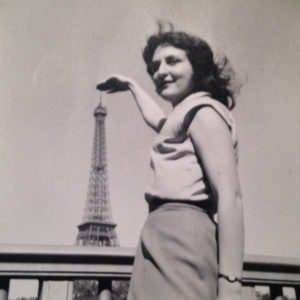 Abigail had her 36th birthday for the umpteenth time. I have always been acutely aware of the “stages” of life. Abigail rejects that idea. And it works for her. She retains the freshness of the young girl who wanted to grow up to be a deer, who as a young lady went off to Paris to fall in love, who lived from childhood on among the period rooms of the Met, who still loves hillbilly music and sings great duets with Johnny Cash. As I move from year to year through the “stages,” it is sublime and a frolic to have this springtime virgin beside me.
Abigail had her 36th birthday for the umpteenth time. I have always been acutely aware of the “stages” of life. Abigail rejects that idea. And it works for her. She retains the freshness of the young girl who wanted to grow up to be a deer, who as a young lady went off to Paris to fall in love, who lived from childhood on among the period rooms of the Met, who still loves hillbilly music and sings great duets with Johnny Cash. As I move from year to year through the “stages,” it is sublime and a frolic to have this springtime virgin beside me.
April 16, 2019
 “I was raised to believe that people who prayed were ignorant. … My parents worshipped at the church of The New York Times, and we bowed down before our antique hi-fi cabinet, which held the Ark of the Covenant – Miles Davis and Thelonious Monk albums. So, to recap, my parents, who were too hip and intellectual to pray, worshipped mostly mentally ill junkies. Our best family friends drank and one-upped one another trashing common enemies, like Richard Nixon and Christians. I think it is safe to say that not one single family member or close family friend prayed, except for my paternal grandfather, who had been a Christian missionary and who loved his grandkids in a way he hadn’t been able to love his kids. … I remember sitting in his lap, and the smell of his pipe. I was six when he was erased. I know beyond a shadow of doubt, with no proof, that my grandfather prayed for all of us kids. As it turns out, if one person is praying for you, buckle up. Things can happen.” From the wonderful Anne Lamott, Help Thanks Wow: The Three Essential Prayers.
“I was raised to believe that people who prayed were ignorant. … My parents worshipped at the church of The New York Times, and we bowed down before our antique hi-fi cabinet, which held the Ark of the Covenant – Miles Davis and Thelonious Monk albums. So, to recap, my parents, who were too hip and intellectual to pray, worshipped mostly mentally ill junkies. Our best family friends drank and one-upped one another trashing common enemies, like Richard Nixon and Christians. I think it is safe to say that not one single family member or close family friend prayed, except for my paternal grandfather, who had been a Christian missionary and who loved his grandkids in a way he hadn’t been able to love his kids. … I remember sitting in his lap, and the smell of his pipe. I was six when he was erased. I know beyond a shadow of doubt, with no proof, that my grandfather prayed for all of us kids. As it turns out, if one person is praying for you, buckle up. Things can happen.” From the wonderful Anne Lamott, Help Thanks Wow: The Three Essential Prayers.
March 25, 2019
“I am still puzzled why, in the West, there’s been so little interest in experiencing the divine and so much emphasis on crowd control.” – John Cleese, the Monty Python star who sometimes teaches at Cornell University.
February 25, 2019
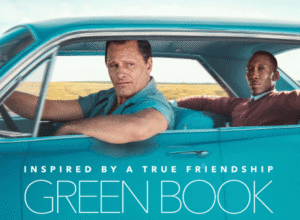 Abigail had been going through what John Bunyan called the Slough of Despond, beset by forces beyond her and our control, and of course I have been going through it with her. We needed a mini-vacation and Abigail had heard about a good movie at the local theatre. At leaving time, we gathered at the front door, there to find a sprightly Christmas card bearing a gift – a movie pass for this very theatre – left by my wonderful assistant, Laura Buck.
Abigail had been going through what John Bunyan called the Slough of Despond, beset by forces beyond her and our control, and of course I have been going through it with her. We needed a mini-vacation and Abigail had heard about a good movie at the local theatre. At leaving time, we gathered at the front door, there to find a sprightly Christmas card bearing a gift – a movie pass for this very theatre – left by my wonderful assistant, Laura Buck.
The movie, “Green Book,” is worth a dozen gift cards. It tells the story of a “Negro” concert pianist who is about to perform at a number of locations in the 1950s South. No fool, he gets, not just a driver, but a street-smart guy from the Bronx, a bouncer for the Copa Cabana nightclub. It is a superb contrast – the urbane, cultured pianist and the rough Italian, which makes for sharp comedy. But, in spite of the many laughs, this is not a comedy. At one point, the tough guy is shocked that the pianist does not know the music of Little Richard or Aretha Franklin. “I’m blacker than you are,” he says. Later, the pianist, who turns out to be gay, laments, “I am not white enough, I am not black enough, I am not man enough. Who am I?” The white guy, on the other hand, who talks crudely, eats crudely, drives crudely, does everthing crudely, is completely comfortable with his identity. When he says, “If they don’t like the way I talk, screw them,” he expresses his whole philosophy of life. It is a movie of the abrasive edges of life and the almost-too-smooth compensations of culture, where sometimes toughness is called for and sometimes rising above it in high dignity wins the day, it is a story overall of despair and redemption.
Abigail and I had dinner afterwards and talked about the movie. We also discussed her Slough of Despond with a little more perspective than before. It was the perfect mini-vacation.
January 29, 2019
 These days often parents let their kids yell and run amok at restaurants. At a place I go to combine lunch with work, one little boy was so well behaved and, as I left, I stopped at their table to congratulate the parents. The mother whispered to me, “He thinks you are Santa Claus!” My very presence helps children be nice rather than naughty!
These days often parents let their kids yell and run amok at restaurants. At a place I go to combine lunch with work, one little boy was so well behaved and, as I left, I stopped at their table to congratulate the parents. The mother whispered to me, “He thinks you are Santa Claus!” My very presence helps children be nice rather than naughty!
January 10, 2019
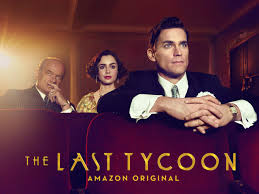 “The Last Tycoon” was on F. Scott Fitzgerald’s final novel, unfinished at his death. It is the basis for a remarkable Amazon Prime series by that name. The series has the style and glamour and the ruthless competitiveness of 1930s Hollywood. We encounter Marlene Dietrich and Louis B. Mayer, and Clark Gable and Jean Harlow are just off camera. Artistic and financial ambitions clash, as do romantic and erotic desires. Like an ice knife cutting through the façade, the Nazi threat intrudes into the lives of the many Jews in that industry. The series is well-written, well-directed, well-acted and beautifully presented. It has over 6000 reviews, almost all five-star. It was cancelled after one year. Abigail asked why. My explanation: “It was too good.”
“The Last Tycoon” was on F. Scott Fitzgerald’s final novel, unfinished at his death. It is the basis for a remarkable Amazon Prime series by that name. The series has the style and glamour and the ruthless competitiveness of 1930s Hollywood. We encounter Marlene Dietrich and Louis B. Mayer, and Clark Gable and Jean Harlow are just off camera. Artistic and financial ambitions clash, as do romantic and erotic desires. Like an ice knife cutting through the façade, the Nazi threat intrudes into the lives of the many Jews in that industry. The series is well-written, well-directed, well-acted and beautifully presented. It has over 6000 reviews, almost all five-star. It was cancelled after one year. Abigail asked why. My explanation: “It was too good.”
December 18, 2018
 I now spend a good deal of time around people engaged in interfaith dialogue. When I spoke to an interfaith council in Arizona, there were 22 faith traditions represented there. In the not distant past, each religion seemed to claim all the truth. The others were full of lies and delusions. Over the years, as people learned to listen to each other with open hearts and minds, they discovered genuine religious insights even in traditions quite different from their own. They learned to respect those who disagreed with them, and to learn from them.
I now spend a good deal of time around people engaged in interfaith dialogue. When I spoke to an interfaith council in Arizona, there were 22 faith traditions represented there. In the not distant past, each religion seemed to claim all the truth. The others were full of lies and delusions. Over the years, as people learned to listen to each other with open hearts and minds, they discovered genuine religious insights even in traditions quite different from their own. They learned to respect those who disagreed with them, and to learn from them.
Today, political discussion in America is at about the stage interreligious rivalry was a hundred years ago. Each side is better at denouncing than listening. One of the most useful things I did in high school was debate. We alternated taking affirmative and negative positions on the topic and learned both sides inside out. One of the conditions for truth-seeking discussion is to be able to state the other person’s point of view in a way they would recognize as accurate. And not only to state their arguments and the facts they would cite, but also to develop empathy for feelings and life circumstances motivate their views. Nothing makes people so angry as not being understood, which is a form of not being heard. Let’s try to understand one another.
December 3, 2018
 Dr. Johnson, I think, said that the prospect of being hanged “concentrates the mind.” When I faced open heart surgery, with a 3-4 percent chance of not surviving, it concentrated my mind. The odds were, of course, overwhelmingly on the side of living. But who would eat a substance or ride a conveyance that carried a 1 in 25 chance of not surviving. It possibility of death, with these odds, is not quite trivial. So, in the four days I had between the news and the procedure, I saw my lawyer, checked my will, finished projects that had imminent deadlines, told my kids that I loved them, and generally tried to put my life and myself in order.
Dr. Johnson, I think, said that the prospect of being hanged “concentrates the mind.” When I faced open heart surgery, with a 3-4 percent chance of not surviving, it concentrated my mind. The odds were, of course, overwhelmingly on the side of living. But who would eat a substance or ride a conveyance that carried a 1 in 25 chance of not surviving. It possibility of death, with these odds, is not quite trivial. So, in the four days I had between the news and the procedure, I saw my lawyer, checked my will, finished projects that had imminent deadlines, told my kids that I loved them, and generally tried to put my life and myself in order.
There is a short story that begins, “No young man believes that he will ever die.” An overstatement, yes, but for the young person, prospective life seems to stretch out as far as the eye can see. Moving into mid-life, one thinks in decades — so many decades before retirement, hopefully some decades after that. At my age, and still having life and work projects very much alive, I count time in days, almost in minutes.
The most important thing we have is time. It can be spent well, or idly, or badly, or just wasted. Each minute, in a sense, sums up your life. That is true even for the times of relaxation, which itself restores oneself to other, more richly meaningful activities. You have to live each moment as if it were the meaning of your whole life. Death is the moment of assessment of a life and T. S. Eliot reminds us, “The moment of death is every moment.” The moment of ultimate reflection is every moment. A senior colleague once reported, “I feel I have frittered away my life.” Don’t fritter it away! Make the most of it — whatever your version of “most” is — down to the fleeting second!
November 10, 2018
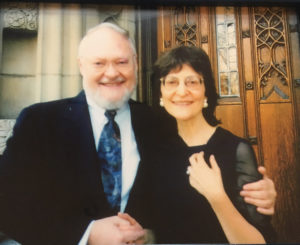 A few weeks ago, I flunked my stress test. Further probes showed blocked arteries and the need for a heart bypass operation. I had four days to put my affairs in order, in case of the worse case scenario, talking to my lawyer about my will, and finishing up work that had deadlines looming. The procedure seems to have gone beautifully and I am at home recovering according to schedule. Full recovery will take a few weeks, after which I should be better than before, with more blood flowing and more energy.
A few weeks ago, I flunked my stress test. Further probes showed blocked arteries and the need for a heart bypass operation. I had four days to put my affairs in order, in case of the worse case scenario, talking to my lawyer about my will, and finishing up work that had deadlines looming. The procedure seems to have gone beautifully and I am at home recovering according to schedule. Full recovery will take a few weeks, after which I should be better than before, with more blood flowing and more energy.
It was all perhaps hardest on Abigail. When we married, I took her away from the city she had known all her life, away from her rent controlled apartment on the upper east side, away from her college and her professorship, away from the friends of a lifetime, and we plunked down in Doylestown Pa, chosen because it was halfway between New York and Washington, D.C., where I was still working, and near Amtrak. In the unlikely event the operation had not gone well, I would have abandoned her in a place that still, for us, resembles Nowhereville.
When we got married, we had each, after first marriages, lived singly for a number of years. We were used to being single, and had lives based on that status that worked well. I was quite aware, after falling in love with Abigail, that I now had a new vulnerability. Our love radiated meaning over my life, and it was hard to see how it would have much of a meaning if something happened to her. She, of course, has the same vulnerability, and I was sorry not to have managed my health better and to have subjected her to the ordeal of wondering whether her husband would survive surgery. Our hope is to life to a ripe old age and then pass away at the same time. Not something we get to decide but we can certainly hope.
Meanwhile, I and she are flourishing and taking on the tasks that have our names on them.
October 2, 2018
 I am a great fan of the “Star Wars” movies. They present a saga and symbols worthy of the Greek myths, and they reflect a more coherent spiritual philosophy. Polled about religious orientation, a fair number of young people in Britain answered, Jedi! Many fans were disturbed, in the prequel, by learning that Darth Vader, whom they had taken to be one-hundred percent evil, was the fallen version of the best Jedi of them all. He turned to the dark side out of love for his wife, who was dying and whom he wanted power enough to save. The movies present the battle of good versus evil, both in the universe and in the soul. In the culminating scene, the Emperor commands Vader to kill his own son, Luke Skywalker. At the last minute, Vader turns on the Emperor instead, and is struck down. Vader knows it is over. Bending over, the distressed Skywalker says, “But I must save you, father!” “You already have,” replies his father.
I am a great fan of the “Star Wars” movies. They present a saga and symbols worthy of the Greek myths, and they reflect a more coherent spiritual philosophy. Polled about religious orientation, a fair number of young people in Britain answered, Jedi! Many fans were disturbed, in the prequel, by learning that Darth Vader, whom they had taken to be one-hundred percent evil, was the fallen version of the best Jedi of them all. He turned to the dark side out of love for his wife, who was dying and whom he wanted power enough to save. The movies present the battle of good versus evil, both in the universe and in the soul. In the culminating scene, the Emperor commands Vader to kill his own son, Luke Skywalker. At the last minute, Vader turns on the Emperor instead, and is struck down. Vader knows it is over. Bending over, the distressed Skywalker says, “But I must save you, father!” “You already have,” replies his father.
September 12, 2018
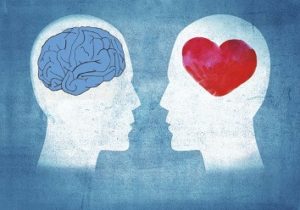 I had a dedicated young woman working for me years ago. A recent convert, she was in high voltage spiritually and dogmatically. In spite of its excesses, this is a state of mind I respect. Sometimes you can’t get where you’re going in baby steps. She stood for her beliefs by picking abortion centers on the weekend. The two of us had occasion to hear a speaker at the National Press Club. Sitting at our table was a Notre Dame alumnus. Some pro-abortion speaker had been honored by the university, raising a storm of controversy. This alum, though himself a Catholic, did not see why this should be an issue. I had expected my young colleague to speak up forcefully. But she was silent. Later, I asked her why. “I could not think of anything I could say with love.”
I had a dedicated young woman working for me years ago. A recent convert, she was in high voltage spiritually and dogmatically. In spite of its excesses, this is a state of mind I respect. Sometimes you can’t get where you’re going in baby steps. She stood for her beliefs by picking abortion centers on the weekend. The two of us had occasion to hear a speaker at the National Press Club. Sitting at our table was a Notre Dame alumnus. Some pro-abortion speaker had been honored by the university, raising a storm of controversy. This alum, though himself a Catholic, did not see why this should be an issue. I had expected my young colleague to speak up forcefully. But she was silent. Later, I asked her why. “I could not think of anything I could say with love.”
August 25, 2018
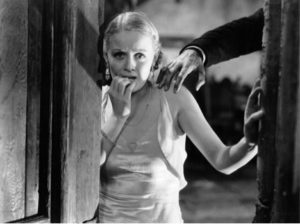 Recently Abigail heard from an agent – a very good one – who is “very” interested in her next book, Confessions of a Young Philosopher. Since I know her well now, I said, “Oh, this is a crisis, isn’t it?” Most adults develop sheets of armor that help them negotiate the world. Abigail has only the thin membrane of a child around her feelings. Good news is as hard to tame as bad. It is one reason she is so perceptive; her sensors are keen and unfiltered. I first discovered this about her when, after proposing, I insisted on buying her a diamond ring, so, as I explained, “you can look down at any time of day or night and be reminded that I love you.” So off to the nice people at Tiffany’s the following Saturday. She was in shock all weekend. Being a deep thinker, she had to process not only her feelings but what this ring “meant.” It was a crisis. On the agent front, she decided to spend some quiet time at a museum, after which we will go out for dinner and, as with a puzzle that has been tossed in the air, start putting the pieces into their new places.
Recently Abigail heard from an agent – a very good one – who is “very” interested in her next book, Confessions of a Young Philosopher. Since I know her well now, I said, “Oh, this is a crisis, isn’t it?” Most adults develop sheets of armor that help them negotiate the world. Abigail has only the thin membrane of a child around her feelings. Good news is as hard to tame as bad. It is one reason she is so perceptive; her sensors are keen and unfiltered. I first discovered this about her when, after proposing, I insisted on buying her a diamond ring, so, as I explained, “you can look down at any time of day or night and be reminded that I love you.” So off to the nice people at Tiffany’s the following Saturday. She was in shock all weekend. Being a deep thinker, she had to process not only her feelings but what this ring “meant.” It was a crisis. On the agent front, she decided to spend some quiet time at a museum, after which we will go out for dinner and, as with a puzzle that has been tossed in the air, start putting the pieces into their new places.
August 9, 2018
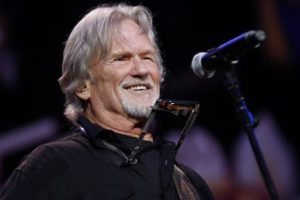 Kris Kristofferson’s experience was nothing like my own, and yet my favorite country song is “Why Me, Lord?” It expresses the surprising gift of discovering that, though you were looking the other way, God took an interest in you. In this video, Kris Kristofferson tells his story. Click Here to watch video
Kris Kristofferson’s experience was nothing like my own, and yet my favorite country song is “Why Me, Lord?” It expresses the surprising gift of discovering that, though you were looking the other way, God took an interest in you. In this video, Kris Kristofferson tells his story. Click Here to watch video
July 21. 2018
 On a trip to California, a well-dressed man and his amply jeweled wife boarded the plane, as if they owned their space and yours too. They were followed by two sons wearing smirks. What were these folks about, I wondered. My seat was two rows behind the couple and immediately behind the two young men. It was easy to hear their assertive voices. They were swapping stories of beating people out or besting them in some deal. “One of us was screwed and I don’t think it was me!” Mutual chuckles. For them, poor creatures, this is the meaning of life.
On a trip to California, a well-dressed man and his amply jeweled wife boarded the plane, as if they owned their space and yours too. They were followed by two sons wearing smirks. What were these folks about, I wondered. My seat was two rows behind the couple and immediately behind the two young men. It was easy to hear their assertive voices. They were swapping stories of beating people out or besting them in some deal. “One of us was screwed and I don’t think it was me!” Mutual chuckles. For them, poor creatures, this is the meaning of life.
July 10, 2018
 Abigail has a blog, Dear Abbie: The Non Advice Column. Last month she wrote a column about the Worst Birthday Ever. On that very day, stepping into a deceptive snow bank and ramming her leg into the concrete below, she fractured her knee. And thereby threatened the progress of the first hopeful treatments for her peripheral neuropathy she has found in twenty years of desperate searching. We usually try to keep the birthday going by celebrating her birthday month. But not this year. The less said about “Birthday” the better.
Abigail has a blog, Dear Abbie: The Non Advice Column. Last month she wrote a column about the Worst Birthday Ever. On that very day, stepping into a deceptive snow bank and ramming her leg into the concrete below, she fractured her knee. And thereby threatened the progress of the first hopeful treatments for her peripheral neuropathy she has found in twenty years of desperate searching. We usually try to keep the birthday going by celebrating her birthday month. But not this year. The less said about “Birthday” the better.
For more than a month, the meaning of life (of hers and of mine as helper) narrowed to moving with excruciating care so the broken bone could safely heal. Her doctor checked it again: Good news. She can drive again! She can resume the promising treatments!
The next day, at breakfast, she saw a card and several small presents. “Happy Unbirthday!” (which you recall from Alice in Wonderland, where celebrants are delighted to discover that it is THEIR unbirthday too!) Sometimes you need an Official Event to close a bad episode. It prompts you to looking forward and upward again.
May 22, 2018
 I have been reflecting on meaning — in the sense of the meaning of life, of what is meaningful in a life. The religious or spiritual person has the challenge of accounting for the surds of existence, all the things that seem so very meaningless, so pointless, so unbearably wrong.
I have been reflecting on meaning — in the sense of the meaning of life, of what is meaningful in a life. The religious or spiritual person has the challenge of accounting for the surds of existence, all the things that seem so very meaningless, so pointless, so unbearably wrong.
The atheist has the opposite challenge. Much in life is quite meaningful — love, beauty, compassion, heroism, the understanding that we are part of something larger, the sense that reality has depth, isn’t all just surface.
The religious person has to account for the deficit of meaning. The atheist has to account for the surplus of meaning. It is not obvious who has the greater challenge.
March 19, 2018
 In her 60 Minutes interview, Oprah Winfrey said, about running for President, “Wouldn’t I know if God wanted me to run? Wouldn’t God tell me? I haven’t heard that yet.” Does Oprah talk with God? Does God talk back? I would guess, Yes and Yes. Hearing from God isn’t necessarily like one of those Hollywood Bible movies in which the voice of God speaks from the heavens in a deep, authoritative “this is CNN” bass. But may be “a still small voice” or just a thought that you didn’t put there yourself or an inner prompt, or even a pattern of events outside yourself, where you have to connect the dots to detect the message. The main requirement is that you have to pay attention to the divine whisper or divine nudge. I take it Oprah does pay attention and, evidently, God has other work for her to do.
In her 60 Minutes interview, Oprah Winfrey said, about running for President, “Wouldn’t I know if God wanted me to run? Wouldn’t God tell me? I haven’t heard that yet.” Does Oprah talk with God? Does God talk back? I would guess, Yes and Yes. Hearing from God isn’t necessarily like one of those Hollywood Bible movies in which the voice of God speaks from the heavens in a deep, authoritative “this is CNN” bass. But may be “a still small voice” or just a thought that you didn’t put there yourself or an inner prompt, or even a pattern of events outside yourself, where you have to connect the dots to detect the message. The main requirement is that you have to pay attention to the divine whisper or divine nudge. I take it Oprah does pay attention and, evidently, God has other work for her to do.
March 1, 2018
 For those of us who live an awfully lot in our heads, in books, in pending world crises, it is a useful remedial in Real Life 101 to drive across country, listening to local radio. “The corn-husking contest …” “The little league playoffs …” “A retirement party for the librarian …” Our visits to Maine take us back to real life, and almost back in time, to the still breathing remains of what was once a ship-building and whaling center. For the first time ever, I had not taken a book and thought to rely on Kindle, which, for the first time ever, would not charge up. Desperate, I asked the waitress at the diner, “Is there a place that sells books?” “Nope,” she responded with Down East economy of expression. A couple overhead us, and volunteered that the rather large gift shop on the main drag sold books, and there were cheap pocket books at the supermarket.
For those of us who live an awfully lot in our heads, in books, in pending world crises, it is a useful remedial in Real Life 101 to drive across country, listening to local radio. “The corn-husking contest …” “The little league playoffs …” “A retirement party for the librarian …” Our visits to Maine take us back to real life, and almost back in time, to the still breathing remains of what was once a ship-building and whaling center. For the first time ever, I had not taken a book and thought to rely on Kindle, which, for the first time ever, would not charge up. Desperate, I asked the waitress at the diner, “Is there a place that sells books?” “Nope,” she responded with Down East economy of expression. A couple overhead us, and volunteered that the rather large gift shop on the main drag sold books, and there were cheap pocket books at the supermarket.
At the first I found a volume of E. B. White essays, a writer in whom I have very little interest but they say you can learn to be a better writer by reading him, and I thought it was high time I learned to write better. But, while on vacation, I prefer the book version of watching television. I tooled off to the store that featured junk food and cheap paperbacks. The problem with potboilers is that they are often written by people who have not read E. B. White. One political who-dunnit began with the female vice president complaining, “I am tired to being treated like a door-mat.” A cliché, and not one likely to come to the mind of a Nancy Pelosi or Susan Collins.
The “legal thriller” I chose did better: “For most human beings, what to do with our hands is an issue.” Hmmm. Then a tribute to the opposable thumb, but what to do with them when they aren’t quite needed? “Once upon a time we busied them by smoking.” Yes, that is a true observation. A colleague at Boulder stopped smoking, told me he no longer knew how to start a class. He had lost his ritual: fumble for the pack, tap it so a cigarette slides forward, pull it out and into his mouth, reach into his pocket for a lighter, ignite it and take a long, slow drag, all while contemplating the topic of that day’s class. Now he would just stand there, twitching. The novelist adds, accurately: “Bogart and Bacall taught us how to do this with style.” Yes, they made it sexy. But that – smoking, not sexiness – is now frowned on. So, he concludes, “we employ our idle fingers fondling our cell phones.” Segway to his assistant, a young woman who is always busy with her cell phone and yet, at the end of a meeting, can recall exactly what was said – welcome to the generation of “multi-tasking.” I was all set for single-tasking a legal thriller that, before the end of the first paragraph, has me interested in the young assistant who, shockingly, is the killer’s next victim. Hold on to your seat!
December 18, 2017
 Abigail and I both like country and Western music, especially old-fashioned gospel – familiar to me from my Texas roots, loved by her despite being a Jewish, sophisticated New Yorker. A few years ago, it was parade day in the small Maine town we were visiting. Across the street, we heard a group making a “joyful noise unto the Lord.” They were from a local church that was featuring a special singer, Diane Muse, the following night. It turned out to be the sort of Quonset church where they talk a lot about the Rapture. Slated to be “left behind,” Abigail slunk lower in her seat. The singing was great and I wanted to linger and thank the singer and preacher, but she was uncomfortable and we rounded our shoulders and slipped out.
Abigail and I both like country and Western music, especially old-fashioned gospel – familiar to me from my Texas roots, loved by her despite being a Jewish, sophisticated New Yorker. A few years ago, it was parade day in the small Maine town we were visiting. Across the street, we heard a group making a “joyful noise unto the Lord.” They were from a local church that was featuring a special singer, Diane Muse, the following night. It turned out to be the sort of Quonset church where they talk a lot about the Rapture. Slated to be “left behind,” Abigail slunk lower in her seat. The singing was great and I wanted to linger and thank the singer and preacher, but she was uncomfortable and we rounded our shoulders and slipped out.
But we visited again the next year. This time, Abigail confronted her situation straight on. She told the preacher’s wife that she appreciated the music and the earnest preaching but that she was Jewish and did not share their beliefs. Without a pause, the wife burst forth, “We love Jews!” “Really?” These were Christians who had not forgotten that Jesus was a Jew and that God already had an ongoing covenant with the Jews and, as evangelicals like to say, “God doesn’t break His word.” We were in that same town again in July. They were having Wednesday night prayer meeting, and we went again, hoping to hear some singing. Well, no singing, all talk. To our surprise, the pastor’s wife recognized Abigail and said she had often thought about meeting her before and Abigail’s words had stuck with her. We were greeted warmly by the whole group. I have been less candid. I have not told them about my experience in talking to God. I don’t know what they could do with the information. I have no desire to disturb those who connect with God through their understanding of His earlier big communication, but I have never been sure I shouldn’t say: You know, God may not have gone silent. If we continue to listen, there may be more to the story.
October 14, 2017
 I used to be a great logic teacher. At the beginning of each course, I would give students a diagnostic exam, about twenty brief arguments and ask them which ones were valid. Most were not, but students swallowed them all. At the end, I would give a similar diagnostic, and they would nail 19 out of 20. I was giving them a terrific life skill. One of my assistants said I should post some logic tips for my readers. Well, that is not exactly what any of my readers signed up for, but here is a simple one that might be helpful. You need to be able to tell when a report or newspaper story is slanted, biased to one side. Slanting is one of the most insidious and hence most effective methods of persuasion. It doesn’t even present an argument you could accept or reject, which would at least give the reader or listener a fighting chance. Instead, slanting slips the wanted conclusion into the very description of events.
I used to be a great logic teacher. At the beginning of each course, I would give students a diagnostic exam, about twenty brief arguments and ask them which ones were valid. Most were not, but students swallowed them all. At the end, I would give a similar diagnostic, and they would nail 19 out of 20. I was giving them a terrific life skill. One of my assistants said I should post some logic tips for my readers. Well, that is not exactly what any of my readers signed up for, but here is a simple one that might be helpful. You need to be able to tell when a report or newspaper story is slanted, biased to one side. Slanting is one of the most insidious and hence most effective methods of persuasion. It doesn’t even present an argument you could accept or reject, which would at least give the reader or listener a fighting chance. Instead, slanting slips the wanted conclusion into the very description of events.
Consider the headlines: “The Mayor scales back the X program.” “… slashes the X program.” “… trims the program.” “… reorganizes the program.” Maybe add: “the popular” X program or “the controversial” one. You can often recognize instantly, even in a normal newspaper headline, the bias of the reporter. Exercise: Try restating the sentence in your own mind, removing the slant and making it more neutral between points of view. Then you can make up your own mind about whether the Mayor is doing the right thing.
 When I was about eleven years old, there was a girl I was interested in. I don’t think I knew I was interested in her, but there is no other explanation for how she got me to go to a 4H meeting. We were not in a farm area and I had no desire whatsoever to tend to animals, but there I was at the meeting and being told I had to have a project.
When I was about eleven years old, there was a girl I was interested in. I don’t think I knew I was interested in her, but there is no other explanation for how she got me to go to a 4H meeting. We were not in a farm area and I had no desire whatsoever to tend to animals, but there I was at the meeting and being told I had to have a project.
Okay, my ever-suffering family got me some rabbit cages which we affixed to the outside rear of the garage, and two rabbits, male and female, like Noah’s ark. I chose rabbits because they are notoriously easy to breed. It would be harder to stop them from breeding. That is true of all rabbits in all parts of the globe. Except for the two in our backyard. Expectantly, I would check them every day. No pregnancy, no effort at pregnancy, not even flirting. From then on, I had a reputation. I was the guy who couldn’t get rabbits to do it. I think the girl felt this was a bad omen. She moved on.
August 29, 2017
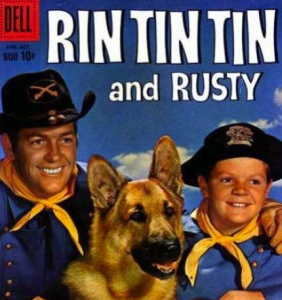 Spring was bursting out. My terrific assistant, Laura Buck, who has a daughter in high school, was talking about senioritis, that seductive listlessness that besets students as their summer escape approaches. “I remember it myself,” she said. I don’t. I have a quite different memory.
Spring was bursting out. My terrific assistant, Laura Buck, who has a daughter in high school, was talking about senioritis, that seductive listlessness that besets students as their summer escape approaches. “I remember it myself,” she said. I don’t. I have a quite different memory.
About a month before the end of the term, I was hit by a car. Driven, of all things, by the daughter of the owner of Rin Tin Tin, star of the silver screen. I had been in the crosswalk of the big parking lot next to the athletic fields. I think she had been checking out the athletes rather than watching where her car was going. She was driving slowly, but fast enough to knock me into the air. Flipped skyward, I remember looking down at the asphalt below. Gravity did its work. An ambulance came. Guys put me on a stretcher. I had remembered from Drivers Ed that they are supposed to put your personal belongings on the stretcher so you don’t worry. Were my guys up to snuff? Yes, there were my school books and shoe, which had flown off, duly resting next to my legs.
I had come down hard and had lacerations on my legs and an acute contusion on my head. Two holes had to be drilled into my skull to drain it. My mother came into my hospital room with a distraught look on her face. I smiled. “Now, Mom, don’t get all shook up!’” She laughed. Her boy was alright.
The owner of the wonder dog was afraid of being sued – that’s what happens to people with celebrity wealth. My family wouldn’t think of such a thing. It was just an accident. No malice, no criminal negligence, a momentary glance in the wrong direction. Rin Tin Tin paid all the medical bills, replaced damaged clothing, and gave me $100 for my discomfort. A hundred bucks doesn’t sound like much but it would cover my McDonald’s tab for the foreseeable future.
The whole episode had been more adventure than trauma. I got a Get Well card signed by all the students in Miss Finley’s Latin class. And it got me out of the end of the term. I didn’t even have to take finals — or resist the lure of senioritis. It was one of the best months of my life!
August 12, 2017
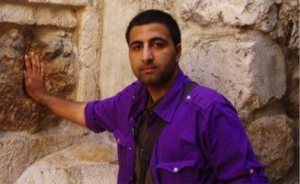 Assad Hafiz spoke recently on “Hate to Hope: How I Learned to Love the Jews.” A British-born Muslim, he was on the path to become a terrorist when he decided the first step was to refute the Zionists. He set out to show all that was wrong with Alan Dershowitz’s The Case for Israel. He was studying politics and knew how to research the issue. To his amazement, fact after fact stood up to hostile scrutiny. The books he read on the other side were, he reports, “all emotional.” They did not answer the facts. Still, he had heard so much bad about Israel that he decided to check it out for himself.
Assad Hafiz spoke recently on “Hate to Hope: How I Learned to Love the Jews.” A British-born Muslim, he was on the path to become a terrorist when he decided the first step was to refute the Zionists. He set out to show all that was wrong with Alan Dershowitz’s The Case for Israel. He was studying politics and knew how to research the issue. To his amazement, fact after fact stood up to hostile scrutiny. The books he read on the other side were, he reports, “all emotional.” They did not answer the facts. Still, he had heard so much bad about Israel that he decided to check it out for himself.
He went to Israel. It is a country that has high security. They could see from his passport that he had visited numerous Muslim countries. What was he here for? “I told them the truth,” Hafiz says, “that I had heard terrible things about Israel and wanted to see if they were true.” They kept him there for eight hours, presumably checking their intelligence sources worldwide to see if there was any dirt on him. It was boring, but Hafiz understood. They let him in, and he went all over Israel, talked to Muslims and all sorts of people.
Nothing he had been told was true! Visiting the Western wall, the foundation of the Second Temple, he learned forward, resting his forehead on the wall. It came to him: Without Israel, without Jews, there would be no Islam and no Christianity. He knew enough history to know that the ideals found here were far superior to the values of the pagan world. They were the basis for our most cherished conceptions of humanity and its rights. He had once thought, if Israel is wicked, I should do something about it. After returning and moving to Canada, he thought that, if the defamation and delegitimization of Israel is wicked, I should do something about it, he started speaking out. His example was a lesson in itself.
There are great pleasures in wrapping oneself inside one’s own set of ideas and antipathies: how smart and righteous am I! It is quite unpleasant to test one’s own beliefs. This young would-be terrorist had done what few of us ever do: go read the very best argument against our own point of view. To do so is a spiritual act.
July 31, 2017
 When I had my first divine encounter, I talked to an old friend who advised me to read The Varieties of Religious Experience, a classic by the American philosopher, William James. I read it rather feverishly at the time, as James quotes generously from reports of religious experiences, ancient, modern, and contemporaneous. Moving a stack of books, here was James, and so I picked it up and started reading it again, now in the quieter frame of mind. There is a great deal of scholarly debate these days about the very term, “religion.” It is essentially a modern concept and not one produced by the religious themelves. People immersed in a tradition, don’t call it a “religion,” they call it truth. If they are Hindus, they call it “dharma.” Taoists talk about the Way. James did not have to worry about the latest epicycle of scholarly dispute. He gave the following simple definition: “the life of religion” consists of “the belief that there is an unseen order, and that our supreme good lies in harmoniously adjusting ourselves thereto.” Doesn’t that about sum it up?
When I had my first divine encounter, I talked to an old friend who advised me to read The Varieties of Religious Experience, a classic by the American philosopher, William James. I read it rather feverishly at the time, as James quotes generously from reports of religious experiences, ancient, modern, and contemporaneous. Moving a stack of books, here was James, and so I picked it up and started reading it again, now in the quieter frame of mind. There is a great deal of scholarly debate these days about the very term, “religion.” It is essentially a modern concept and not one produced by the religious themelves. People immersed in a tradition, don’t call it a “religion,” they call it truth. If they are Hindus, they call it “dharma.” Taoists talk about the Way. James did not have to worry about the latest epicycle of scholarly dispute. He gave the following simple definition: “the life of religion” consists of “the belief that there is an unseen order, and that our supreme good lies in harmoniously adjusting ourselves thereto.” Doesn’t that about sum it up?
July 24, 2017
 I believe in taking in truth wherever you find it. It is an approach that avoids dogmatism and narrowness. However, I recently was told about the spiritual master who asked his pupils, “Which way would you more likely strike water – by digging one 60-foot well or by digging ten six-foot wells?” Well, I must admit, I dig ten, a hundred, wells just so far as I happen to get. The speaker, who has lived a long, rich, full life, said he had dug six 60-foot wells by embracing six different religious or spiritual practices with sufficient depth that, in some cases, he was himself a certified master. Impressive, but is it necessary? I am willing to accept that this was his calling, but is it my calling or yours, that is not so clear. It was certainly not what I felt led to do. I am inclined not to worry about shallow or deep. To stay spiritually attuned and you, either way, will probably be in your best comportment toward the divine.
I believe in taking in truth wherever you find it. It is an approach that avoids dogmatism and narrowness. However, I recently was told about the spiritual master who asked his pupils, “Which way would you more likely strike water – by digging one 60-foot well or by digging ten six-foot wells?” Well, I must admit, I dig ten, a hundred, wells just so far as I happen to get. The speaker, who has lived a long, rich, full life, said he had dug six 60-foot wells by embracing six different religious or spiritual practices with sufficient depth that, in some cases, he was himself a certified master. Impressive, but is it necessary? I am willing to accept that this was his calling, but is it my calling or yours, that is not so clear. It was certainly not what I felt led to do. I am inclined not to worry about shallow or deep. To stay spiritually attuned and you, either way, will probably be in your best comportment toward the divine.
July 10, 2017
 This is a day of mourning for me, not that anyone has died. We like happy days, and don’t want sad days, but sometimes sadness is the most meaningful thing of all. I heard unfortunate news about a woman I got to know at an American Academy of Religion meeting. Since she teaches nearby, we had subsequently spent an afternoon sharing experiences, breaking bread together, and visiting the great cathedral of her church. We talked from head and heart. She sent me some excellent pieces she is writing, and we had a possible project in mind. I was surprised that, at the end of the semester, when I e-mailed her to follow up, she did not respond. Nor when I sent another message. I just learned that she has cancer. Don’t know the type or seriousness of it, but one goes stone cold at any mention of the “c” word. There was also another piece of news, not so grave, but saddening nonetheless. Glen Campbell, the country-western singer, has Alzheimer’s. He can no longer play the guitar. Most of these guys and gals, even as they move into twilight years, still have their music, which was always their best form of expression anyway. Instead, Campbell will have the frustration, or perhaps for him it will be more like a longing, for the missing heart of his life. To stay cheerful, one might very well shield oneself from the suffering of others – and, God knows, there is no way one can take it all in – but it seems best to share the setbacks and heartbreak and pain of others, at least enough to keep one’s own heart in tune.
This is a day of mourning for me, not that anyone has died. We like happy days, and don’t want sad days, but sometimes sadness is the most meaningful thing of all. I heard unfortunate news about a woman I got to know at an American Academy of Religion meeting. Since she teaches nearby, we had subsequently spent an afternoon sharing experiences, breaking bread together, and visiting the great cathedral of her church. We talked from head and heart. She sent me some excellent pieces she is writing, and we had a possible project in mind. I was surprised that, at the end of the semester, when I e-mailed her to follow up, she did not respond. Nor when I sent another message. I just learned that she has cancer. Don’t know the type or seriousness of it, but one goes stone cold at any mention of the “c” word. There was also another piece of news, not so grave, but saddening nonetheless. Glen Campbell, the country-western singer, has Alzheimer’s. He can no longer play the guitar. Most of these guys and gals, even as they move into twilight years, still have their music, which was always their best form of expression anyway. Instead, Campbell will have the frustration, or perhaps for him it will be more like a longing, for the missing heart of his life. To stay cheerful, one might very well shield oneself from the suffering of others – and, God knows, there is no way one can take it all in – but it seems best to share the setbacks and heartbreak and pain of others, at least enough to keep one’s own heart in tune.
June 25, 2018
When I was a kid, we visited relatives in Comanche county, Texas, some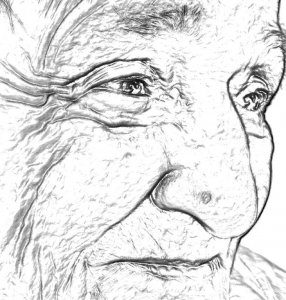 miles south of Dallas. We visited relatives from my Dad’s side of the family, scattered here and there, farmers mainly, many of whom I had never met before. One visit took us to an old folks home to visit my great aunt Ruth, sister of my grandfather. I had never met someone so old. I remembered her vaguely from earlier childhood, and make a passing reference to her in the God book. She had that extraordinary Christian attitude that, no matter what happens, it is good. A cat would knock over a lamp, shattering it, and she would say, “Praise the Lord” and find some providential meaning in it. On this occasion, she wasn’t up to saying much, but still had a sweet smile. At first, she did not recognize my dad, then she thought he might be my grandfather, but finally it was made clear to her who he was, and she was glad to see him. As they talked, she didn’t seem to track the conversation. One moment didn’t seem to connect with another. Driving back, I thought, “Tomorrow, she might not even remember this visit,” and then wondered, had it been worth our time to come? I decided it had been, not because of some cost-benefit analysis, since the costs were clearer than the benefits, but because of an odd sense that a moment of value has a kind of timeless meaning. It meant something at the moment we visited, that was all that mattered.
miles south of Dallas. We visited relatives from my Dad’s side of the family, scattered here and there, farmers mainly, many of whom I had never met before. One visit took us to an old folks home to visit my great aunt Ruth, sister of my grandfather. I had never met someone so old. I remembered her vaguely from earlier childhood, and make a passing reference to her in the God book. She had that extraordinary Christian attitude that, no matter what happens, it is good. A cat would knock over a lamp, shattering it, and she would say, “Praise the Lord” and find some providential meaning in it. On this occasion, she wasn’t up to saying much, but still had a sweet smile. At first, she did not recognize my dad, then she thought he might be my grandfather, but finally it was made clear to her who he was, and she was glad to see him. As they talked, she didn’t seem to track the conversation. One moment didn’t seem to connect with another. Driving back, I thought, “Tomorrow, she might not even remember this visit,” and then wondered, had it been worth our time to come? I decided it had been, not because of some cost-benefit analysis, since the costs were clearer than the benefits, but because of an odd sense that a moment of value has a kind of timeless meaning. It meant something at the moment we visited, that was all that mattered.
June 10, 2018
I grew up in a Southern Baptist Church. Abigail is Jewish. When I first fell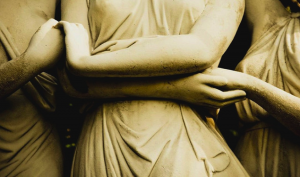 in love, I didn’t know if a sophisticated girl like her could accept a boy born in the Texas Panhandle. It turns out that, as a kid, she had gone to Quaker work camp in the North Carolina hills, and had come to love country gospel, which she listens to each morning as she does her exercises. When I learned that, I knew she was not an uppity New Yorker. Vacationing in a small town in Maine, we went to her country gospel at a local evangelical church that met in a Quonset hut. Abigail had never been to a Christian church. She kept her head down and, indeed, when the preacher got to the Rapture and how all those who not accept Christ would be left behind, she slumped lower in her seat. We made a quick retreat afterwards, but the minister’s wife did manage to shake our hands. Eating at the local diner afterwards, who came in but the wife and a gaggle of ladies from the church. Seeing us, she came over. Abigail told her she was Jewish and the minister’s wife said, with obvious sincerity, “We love Jews!” Having a Jew visit was almost an occasion for celebration. Maybe the Lord told them, as he did Paul, “stop persecuting my people!”
in love, I didn’t know if a sophisticated girl like her could accept a boy born in the Texas Panhandle. It turns out that, as a kid, she had gone to Quaker work camp in the North Carolina hills, and had come to love country gospel, which she listens to each morning as she does her exercises. When I learned that, I knew she was not an uppity New Yorker. Vacationing in a small town in Maine, we went to her country gospel at a local evangelical church that met in a Quonset hut. Abigail had never been to a Christian church. She kept her head down and, indeed, when the preacher got to the Rapture and how all those who not accept Christ would be left behind, she slumped lower in her seat. We made a quick retreat afterwards, but the minister’s wife did manage to shake our hands. Eating at the local diner afterwards, who came in but the wife and a gaggle of ladies from the church. Seeing us, she came over. Abigail told her she was Jewish and the minister’s wife said, with obvious sincerity, “We love Jews!” Having a Jew visit was almost an occasion for celebration. Maybe the Lord told them, as he did Paul, “stop persecuting my people!”
May 20, 2018
 Abigail and I used to spend a week in Maine each summer. The small town was having some kind of parade and, among the activities, was a church group singing beautiful gospel songs. It turns out that they were having a visiting singer, Diane Muse, and so we went to hear her. Afterwards, they greeted us new-comers, as evangelicals do. They mentioned that they knock on doors to spread their message. I gave them my honest advice: don’t knock on doors! Nobody invited you there. People don’t like to be disturbed. Go sing in the park where anyone can linger. They are there voluntarily, and you can speak to them there, give them a pamphlet, and invite them to church.
Abigail and I used to spend a week in Maine each summer. The small town was having some kind of parade and, among the activities, was a church group singing beautiful gospel songs. It turns out that they were having a visiting singer, Diane Muse, and so we went to hear her. Afterwards, they greeted us new-comers, as evangelicals do. They mentioned that they knock on doors to spread their message. I gave them my honest advice: don’t knock on doors! Nobody invited you there. People don’t like to be disturbed. Go sing in the park where anyone can linger. They are there voluntarily, and you can speak to them there, give them a pamphlet, and invite them to church.
Sometimes someone knocks on our doors – Seventh Day Adventists some months back and, last week, two young Mormon gentlemen. We were having breakfast and did not welcome the interruption. Nevertheless, I spoke kindly to them. At first, they thought I was a candidate for conversion. They gave me a copy of the Book of Mormon, which I did not own, and which, in spite of many Marriott opportunities, I have never read a line of. I probably should some day. When I made it clear I was not interested in pursuing their faith, they were puzzled why I had been so friendly and forthcoming. I told them that I appreciate anyone who is peacefully living their faith and quietly offering it to others. I wished them farewell, and went back to a very meaningful breakfast with my wife.
May 7, 2017
 A friend just sent me this poem by William Blake, which I had not seen before. It alerts us to the human refraction of the divine. It is called “The Divine Image.”
A friend just sent me this poem by William Blake, which I had not seen before. It alerts us to the human refraction of the divine. It is called “The Divine Image.”
To Mercy, Pity, Peace, and Love
All pray in their distress;
And to these virtues of delight
Return their thankfulness.
For Mercy, Pity, Peace, and Love
Is God, our father dear,
And Mercy, Pity, Peace, and Love
Is Man, his child and care.
For Mercy has a human heart,
Pity a human face,
And Love, the human form divine,
And Peace, the human dress.
Then every man, of every clime,
That prays in his distress,
Prays to the human form divine,
Love, Mercy, Pity, Peace.
And all must love the human form,
In heathen, Turk, or Jew;
Where Mercy, Love, and Pity dwell
Then God is dwelling too.
April 24, 2017
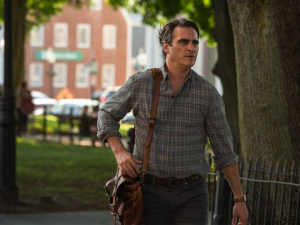 Woody Allen makes a movie every year. Some are funny, some are not. Of those that are not, some are not meant to be. Among these is “Irrational Man.” Allen often pokes fun at great themes in literature – such as “Love and War,” his takeoff on Tolstoy — or parodies of how intellectuals talk about the “deep” thinkers like Freud and Nietzsche and Sartre, where the primal force of life itself, or of radical, arbitrary commitment, thrusts itself against the unfeeling wall of meaningless existence. What is unusual in “Irrational Man” is that these “deep” ideas are given a serious embodiment in a young professor who arrives to teach at a small college, unsettling the place with his bold, radical ideas, the courageous thrust of which makes him irresistibly attractive to a faculty neighbor’s wife and, more dangerously, to a bright-eyed philosophy major already committed to a boyfriend who loves her. While smashing oneself bravely against the shoals of absurd existence may sound heroic, the guy turns out to be a dead man walking. We may not know if all life is meaningless, but this guy’s certainly is. It turns out that preaching about the absurd is not a sufficient reason to go on. He feels he has no reason to do anything. Carrying a hip flask is the only thing that helps. It comes to him that you should murder a guy – shades of Crime and Punishment – and therein discovers a purpose, a reason to live. A new vitality, literally a new virility, courses through his veins. And then … well, I won’t give away the ending, but the young student ends up being the pillar of truth in the movie.
Woody Allen makes a movie every year. Some are funny, some are not. Of those that are not, some are not meant to be. Among these is “Irrational Man.” Allen often pokes fun at great themes in literature – such as “Love and War,” his takeoff on Tolstoy — or parodies of how intellectuals talk about the “deep” thinkers like Freud and Nietzsche and Sartre, where the primal force of life itself, or of radical, arbitrary commitment, thrusts itself against the unfeeling wall of meaningless existence. What is unusual in “Irrational Man” is that these “deep” ideas are given a serious embodiment in a young professor who arrives to teach at a small college, unsettling the place with his bold, radical ideas, the courageous thrust of which makes him irresistibly attractive to a faculty neighbor’s wife and, more dangerously, to a bright-eyed philosophy major already committed to a boyfriend who loves her. While smashing oneself bravely against the shoals of absurd existence may sound heroic, the guy turns out to be a dead man walking. We may not know if all life is meaningless, but this guy’s certainly is. It turns out that preaching about the absurd is not a sufficient reason to go on. He feels he has no reason to do anything. Carrying a hip flask is the only thing that helps. It comes to him that you should murder a guy – shades of Crime and Punishment – and therein discovers a purpose, a reason to live. A new vitality, literally a new virility, courses through his veins. And then … well, I won’t give away the ending, but the young student ends up being the pillar of truth in the movie.
What a break from all those films – which are rife and often considered inspiring – about finding meaning in a meaningless world! Allen reminds us that a philosophy has to stand (and survive) the test of living it out. I had a colleague at Boulder known in her youth for being a bold existentialist. Her daughter was born the same day, in the same hospital, as mine. Over time, I noticed that her philosophical interests had shifted. She no longer taught Sartre. She explained: “Somehow, after I had kids, that stuff didn’t make much sense anymore.”
April 10, 2017
 It was one of those out-of-the-blue events that one rarely witnesses personally, up close, in real time – the academic version, in a young man’s career, of winning the lottery. Yet it was unremarked as if unnoticed. We were having a California-eclectic lunch with a good friend of ours, who is a scholar of Indic traditions, and a young man just finishing his Ph.D. Our friend had been the outside reader for the young scholar’s dissertation. Munching nonchalantly, our friend remarked that he is now the editor for a series of books on Indic traditions. “You know,” looking at the younger man, “your dissertation would be ideal for my new series – unless it is also committed elsewhere.” “No, not really.” That was all that was said, all that was needed. The first huge hurdle of a scholar’s career is getting his first book published. In an instant, this young man had been swooped up, carried over, and placed afoot on the other side of this hurdle. He must have been doing “yes!” backflips inside, but outside it was all unremarked, without as much as raised eyebrow or upturned mouth, as lunch and academic life flowed on.
It was one of those out-of-the-blue events that one rarely witnesses personally, up close, in real time – the academic version, in a young man’s career, of winning the lottery. Yet it was unremarked as if unnoticed. We were having a California-eclectic lunch with a good friend of ours, who is a scholar of Indic traditions, and a young man just finishing his Ph.D. Our friend had been the outside reader for the young scholar’s dissertation. Munching nonchalantly, our friend remarked that he is now the editor for a series of books on Indic traditions. “You know,” looking at the younger man, “your dissertation would be ideal for my new series – unless it is also committed elsewhere.” “No, not really.” That was all that was said, all that was needed. The first huge hurdle of a scholar’s career is getting his first book published. In an instant, this young man had been swooped up, carried over, and placed afoot on the other side of this hurdle. He must have been doing “yes!” backflips inside, but outside it was all unremarked, without as much as raised eyebrow or upturned mouth, as lunch and academic life flowed on.
March 28, 2017
It was not the time fo r a conversation. We were all pressed toward the gate, waiting to begin boarding. Abigail and I had been standing for some time when a man looked up and offered her his seat. He looked like a solid, stolid mid-life businessman. I complimented him on his good manners. He owed them to his father, he said. We were talking sideways, attention riveted to the gate, when he turned and looked straight at me for a good long moment. “I have a knack of reading people,” he said. “Could I ask whether you are religious?” Not affiliated, I said, but I do believe in God. He then told me the following story. For years, he had been a drug addict, all-out, non-stop, morning-to-night. Until he died from an overdose. He didn’t give me the clinical details but, while dead, he met God. And he felt God’s love. When he returned to life, he was a changed man – first, he was completely free of addiction, then and thereafter, and, second, he had a new purpose: to always act in a loving way. It was just a brief interaction, then: “Group 3, board now.” And we went our separate ways.
r a conversation. We were all pressed toward the gate, waiting to begin boarding. Abigail and I had been standing for some time when a man looked up and offered her his seat. He looked like a solid, stolid mid-life businessman. I complimented him on his good manners. He owed them to his father, he said. We were talking sideways, attention riveted to the gate, when he turned and looked straight at me for a good long moment. “I have a knack of reading people,” he said. “Could I ask whether you are religious?” Not affiliated, I said, but I do believe in God. He then told me the following story. For years, he had been a drug addict, all-out, non-stop, morning-to-night. Until he died from an overdose. He didn’t give me the clinical details but, while dead, he met God. And he felt God’s love. When he returned to life, he was a changed man – first, he was completely free of addiction, then and thereafter, and, second, he had a new purpose: to always act in a loving way. It was just a brief interaction, then: “Group 3, board now.” And we went our separate ways.
March 15, 2017
“We have to make final arrangements.” Who sez? I have extraordinarily little interest in what happens to my remains, but Abigail likes to have unsettled things settled. She is right, of course. While one does not like to contemplate the moment the screen says “Finis,” setting affairs in order is not so much about death – what can it matter to you after you are gone? – but about life, and the responsible conduct of life. One should not leave burdens to those left behind. They will have grief enough. It is part of one’s living love and care to make arrangements long before they are needed. My parents did this, and my father, who is still alive and well, years ago wrote his own obituary. It begins, “L. B. Martin died peacefully in his bed …” That’s not a bad attitude!
March 9, 2017
 We still feel like newlyweds but Abigail and I celebrated our eighteenth anniversary. I still look over every morning and realize what a lucky man I am.
We still feel like newlyweds but Abigail and I celebrated our eighteenth anniversary. I still look over every morning and realize what a lucky man I am.
We had thought to view some art in Philadelphia and, weather permitting, visit local history via a carriage ride. Abigail loves horses, but the last one preferred to see her face down flat on the ground. She was complemented for “falling well,” but that is not an achievement to be re-enacted. However, any nearness to a horse is a delight, and a carriage ride provides proximity without risk. However, the woman who does her nails – Hrsha – is from India, and recommended a Hindu mandir near Hamilton, N.J. Better to do something we have not done before, we decided.
Through a gate, we glimpsed the mandir set far back on expansive grounds. The guard, politely but firmly, demanded our purpose for visiting. “To see Krishna,” I said. He bowed with prayerful hands and let us through.
Inside a very large building is what looks like another building, a vast shrine of white marble, carved in detail top to bottom with images of gods and goddesses and the decorative surround befitting them. There was a separate room for worship, and there the showing was to take place. In Hinduism, the god or goddess agrees to be present in a consecrated shrine. Worship consists of darshan, auspicious seeing. At the announced time, a curtain is drawn back, and the god and other holy figures are revealed. You look at Krishna and Krishna looks back. It is a direct encounter with the divine.
In my view, and what I am told in God: An Autobiography, God comes to us in many ways and in many venues. So I take this moment of divine encounter quite seriously. We lingered a good while in reverential silence. Afterwards we drove to the rain to another special encounter, with French food, at a splendid little café in Lambertville, which we approached, if not reverently, at least with the deepest respect.
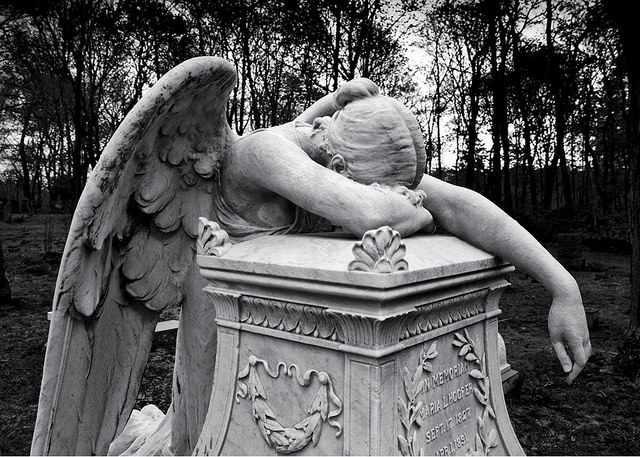 Two members of our extended family recently suffered the sudden loss of a daughter, of mid-life years, from unknown causes but (here I speculate) possibly a drug overdose. She was a dear, dear girl whose heart had gone out to guys not worthy of her. She may have pulled them up but, over time, they may have done her final, fatal harm. Words fail at such a time, but here is the note I sent to her parents:
Two members of our extended family recently suffered the sudden loss of a daughter, of mid-life years, from unknown causes but (here I speculate) possibly a drug overdose. She was a dear, dear girl whose heart had gone out to guys not worthy of her. She may have pulled them up but, over time, they may have done her final, fatal harm. Words fail at such a time, but here is the note I sent to her parents:
We are very saddened at the news of this precious daughter’s life snuffed out so suddenly and prematurely. It is so very hard to be human, and life is so full of grief and disappointment! Our hearts go out to the two of you. [She] is now well, in hands safer than we can provide. It is the two of you, along with other family, who must bear the burden of loss and of the inevitable second-guessing (if only …). All God asks of any of us is that we do our best, and our best is not usually THE best, but it is the best we can manage given our own personal resources and limitations. I love Lincoln’s prayer, “May we do the right as God gives us to know the right …” I trust [she] did that, as best she could. Now those of us left behind must do the best we can to find consolation, share our love, and draw wisdom from this tragic moment. Love from Abigail and me, and blessings to you both!
Rest In Peace, Sweetheart!
February 10, 2107
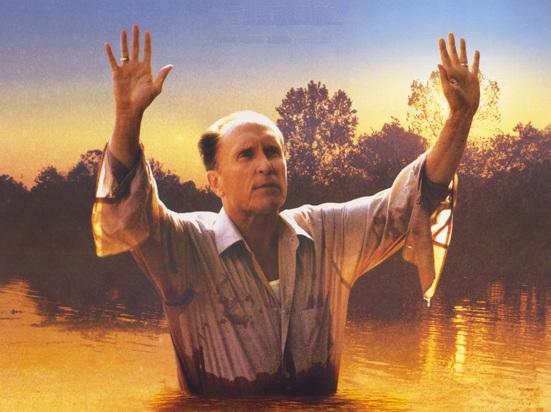 My friend, Jon Weidenbaum, reminded me of a remarkable scene in a remarkable movie, “The Apostle,” written, directed, and starred in by Robert Duvall. I had seen the movie on Netflix, and it was so good I watched it again with his running commentary, and I watched the interview with him as well.
My friend, Jon Weidenbaum, reminded me of a remarkable scene in a remarkable movie, “The Apostle,” written, directed, and starred in by Robert Duvall. I had seen the movie on Netflix, and it was so good I watched it again with his running commentary, and I watched the interview with him as well.
The film cuts close to my own Texas-Tennessee roots and I approached it with trepidation, not only because of that but because I hear a God voice, and I thought that a movie about a religious fanatic, which is one way to describe the main character, would present him as a nut-case. I am not much of a fanatic or nut-case, but you see the point. I have known from the beginning that every guy on the street corner holding up a sign — “The End is Near” — thinks God is talking to him. I know that logically it doesn’t follow that, because one guy who “hears” God is a lunatic, that all who do so – including Socrates, Joan of Arc, George Fox, and other notables – are mistaken. Still, it is difficult company to be in.
Jon and I were in a discussion where the book of Job came up. Job, a devout man, has suffered unfair punishments and is angry at God about it. He challenges God. The preacher in “The Apostle” also tells God how mad at Him he is. It can be seen on You Tube at https://www.youtube.com/watch?v=q5v5DOEF45E.
It is a lesson in how to pray. You always have to be honest. No artificial piety welcome. No nicey-nice. Just let it pour out. It can be praise. It can be thanks. It can be an earnest request for guidance. Or it can just be anger, anger that reaches from here to the highest sky, anger that is specific to an instance in which you feel God let you down, or anger that is global, cosmic in scope. It just has to be honest. Then you and God are in relationship. And that is where you want to be.
February 10, 2017
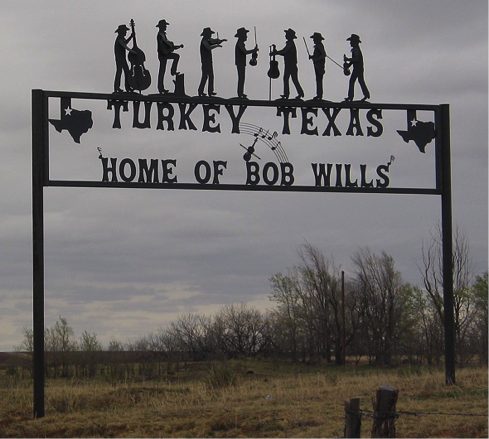 Gosh, do we have a murderer in the family? I always knew that my mother had had a sister, closest in age, who had died, in childhood I assumed, since my mom never said anything else about her. On a visit to my birthplace, Turkey, Texas (northeast of Lubbock), my first cousin Margaret told us that she had been killed. By her husband, so the story goes, who discovered her in a situation that, under Texas mores of the day, justified her prompt termination. He was apparently never prosecuted. I suppose there was a sheriff around but, in my childhood visits to Turkey, I don’t ever remember seeing any evidence whatever of the presence of legal institutions or their enforcement. If there was a sheriff, I imagine him looking like Andy Griffith. I tell the story lightly, since it is distant in life and remote in, well, lifestyle. Hard to take it seriously. Of course, it was deadly serious for her, and the husband, and for the little boy she apparently left behind. Life has some hard edges, very hard indeed.
Gosh, do we have a murderer in the family? I always knew that my mother had had a sister, closest in age, who had died, in childhood I assumed, since my mom never said anything else about her. On a visit to my birthplace, Turkey, Texas (northeast of Lubbock), my first cousin Margaret told us that she had been killed. By her husband, so the story goes, who discovered her in a situation that, under Texas mores of the day, justified her prompt termination. He was apparently never prosecuted. I suppose there was a sheriff around but, in my childhood visits to Turkey, I don’t ever remember seeing any evidence whatever of the presence of legal institutions or their enforcement. If there was a sheriff, I imagine him looking like Andy Griffith. I tell the story lightly, since it is distant in life and remote in, well, lifestyle. Hard to take it seriously. Of course, it was deadly serious for her, and the husband, and for the little boy she apparently left behind. Life has some hard edges, very hard indeed.
February 4, 2017
 The house I was born in is now an empty lot. The highways – the only paved streets – intersect there. The bare sign of life is a monument in the form of a Texas flag, announcing that the little, windblown town of Turkey is the home of Bob Wills and the Texas Playboys. There is a “shrine” to them down the street.
The house I was born in is now an empty lot. The highways – the only paved streets – intersect there. The bare sign of life is a monument in the form of a Texas flag, announcing that the little, windblown town of Turkey is the home of Bob Wills and the Texas Playboys. There is a “shrine” to them down the street.
Until I learned about Mr. Wills, I thought I had a shot at being the most famous person ever to be numbered among its several hundred inhabitants. The town wasn’t much when I was a kid – my cousin Richard would bring me up to date on the population. “The McCardles had twins. Sally Sue ran away with a home products salesman. Old man Smithson died. So it’s now 998.” Today, it is down to a few hundred. Houses I looked for were gone, like missing teeth in an old man’s smile.
One of the largest buildings is still there, now a museum we were able to visit (thanks to its dedicated keeper). It had been THE grocery store, run by my oldest uncle, Calvin, and later a younger uncle, Virgil. The family lived up above, on a wide balcony from which you could look down into the store. The high sidewalk outside was originally wooden, placed at that level so that farmers could hitch their horses to it. They would come into town on Saturday to resupply for the week and then hang around on that veranda and talk politics. I was just a little thing, but I would listen with fascination to their arguments. Everybody was a Democrat – although I have been told that my grandfather was a Republican but didn’t dare let anybody know – but they had strong opinions about which ones were the good ones. When I asked my grandmother, who lived into her 90s, who was the first president she remembered, she reached way back into the nineteenth century – to Grover Cleveland – and she was still mad at him. “Cotton was down to ten cents a bale and he wouldn’t do a derned thing about it!”
I doubt if I will ever need to go back. The town is now more real in memory and imagination than the shuttered stores left behind. Remembrance of things past indeed – yes, our minds have that wonderfully effective capacity!
February 1, 2017
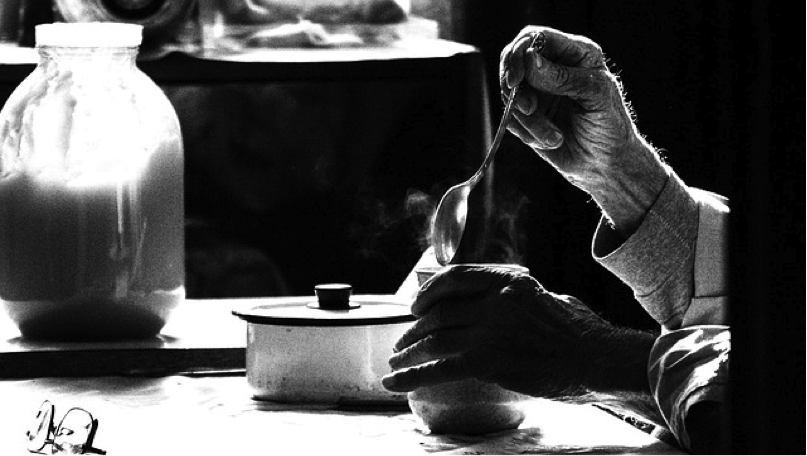 Each time I visit my father, I know this might be the last time I see him. He is ninety-five, pain-free, on his feet (with some unsteadiness now), and enjoys life, however diminished its scope. We last saw him in June and he has noticeably declined since then. I went to the shopping mall to see his buddies there – they are a shrinking group and only two were around – and then to Tai Chi, where, unlike all times past, we just sat and watched.
Each time I visit my father, I know this might be the last time I see him. He is ninety-five, pain-free, on his feet (with some unsteadiness now), and enjoys life, however diminished its scope. We last saw him in June and he has noticeably declined since then. I went to the shopping mall to see his buddies there – they are a shrinking group and only two were around – and then to Tai Chi, where, unlike all times past, we just sat and watched.
Dad always loves to talk about old times, particularly meeting my mom, who was eighteen but “looked like a well-developed fourteen-year-old,” their three-week courtship (she was impressed that he know how to milk a cow), acceptance by Mom’s mom (who had had sharp objections to every previous suitor), and the marriage of two high-spirited eighteen and nineteen year olds. When Mom passed away a few years ago, Dad said, “We had 67 years – and it wasn’t nearly long enough.”
On this visit, he told the old stories but in a new key. Before, it was in the spirit of celebration, of relishing the life he had lived and is still living. This time it was retrospective, a summing up or assessment a life in which he had done what he set out to do – to keep his promise to Mom’s mom to take good care of her daughter. Not a bad thing to be doing at this point in his life, but it does have the feeling of ringing down the curtain.
January 26, 2017
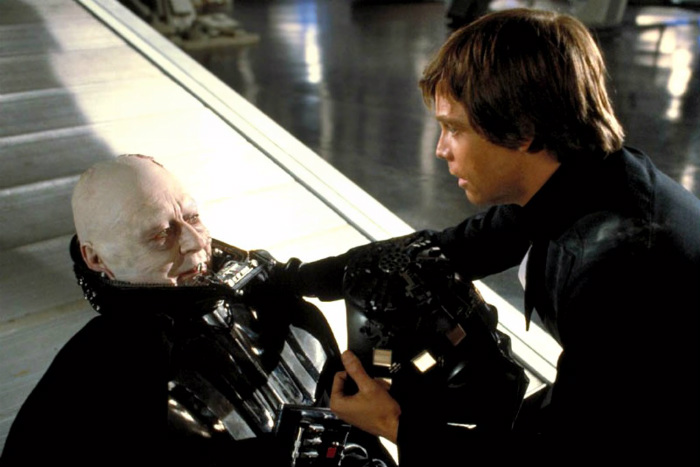 Star Wars VII reawakened my interest. A couple of years ago, I had rewatched I through VI – a great “exercise” movie for doing my elliptical. There is an interesting spiritual philosophy there, in the mythos of our age. There is view of good and evil, and what theologians call a soteriology, a theory of salvation. In the climactic scene, Darth Vader is ordered by the Emperor to kill Luke, his son. After wavering, Vader turns on the Emperor instead, but suffers mortal wounds in the process. Luke rushes over. “I have to save you, father.” Vader replies: “You already have.”
Star Wars VII reawakened my interest. A couple of years ago, I had rewatched I through VI – a great “exercise” movie for doing my elliptical. There is an interesting spiritual philosophy there, in the mythos of our age. There is view of good and evil, and what theologians call a soteriology, a theory of salvation. In the climactic scene, Darth Vader is ordered by the Emperor to kill Luke, his son. After wavering, Vader turns on the Emperor instead, but suffers mortal wounds in the process. Luke rushes over. “I have to save you, father.” Vader replies: “You already have.”
January 10, 2017
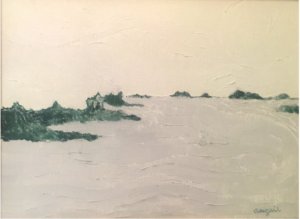 I journeyed to Maine with Abigail. I put it that way because this was really her trip and I was “the spouse of.” Her parents retired to a small town where Abigail visited in the summers and formed valuable friendships. I have come to value them as well. They included Sally, head of the theatre program at a major university, a national leader in her field, who was never happier than when in Maine, riding (she had a wonderful way with horses) and sailing (boats loved her too). Alas, Sally passed away some months ago, and part of the meaning the visit was to stitch the hole she left. Most of our visits touched on her in one way or another.
I journeyed to Maine with Abigail. I put it that way because this was really her trip and I was “the spouse of.” Her parents retired to a small town where Abigail visited in the summers and formed valuable friendships. I have come to value them as well. They included Sally, head of the theatre program at a major university, a national leader in her field, who was never happier than when in Maine, riding (she had a wonderful way with horses) and sailing (boats loved her too). Alas, Sally passed away some months ago, and part of the meaning the visit was to stitch the hole she left. Most of our visits touched on her in one way or another.
December 29, 2016
 The most unusual residential development in Lubbock is a replica of a New England town – upright Victorian houses of multiple colors crowd its narrow streets. The last event of my visit was a chairs-in-a-circle discussion at Town Hall. Mallory (I didn’t catch his last name) was a gracious host and we talked for more than two hours. This was great. Everyone had plenty of opportunity to ask questions about whatever was on their minds pertaining to their spiritual lives. One man had looked rather worried as I made opening comments and I feared that I had said something to offend him, which is easy to do in a religious discussion. However, it was not me but his son that concerned him. The young man was a classics major, interested in theology and in philosophy. He had thought to go to a seminary in Kentucky, but wondered if he should study philosophy instead, since he does not intend to be a minister. It is risky to advise someone you don’t know or, in this case, haven’t even met, but I thought about lives these two alternatives would lead to. One is the narrow path, which would make sense if he had a call to the ministry, but would seem unduly confining otherwise. The other is a broad path, open to all the world’s wisdom, including its greatest religious thinkers. I recommend that he find a program in philosophy that had an emphasis on the philosophy of religion. Steve Balch of Texas Tech recommended that the young man seek advice from Professor Mark Webb of their philosophy department – an excellent suggestion. I wish the young man well!
The most unusual residential development in Lubbock is a replica of a New England town – upright Victorian houses of multiple colors crowd its narrow streets. The last event of my visit was a chairs-in-a-circle discussion at Town Hall. Mallory (I didn’t catch his last name) was a gracious host and we talked for more than two hours. This was great. Everyone had plenty of opportunity to ask questions about whatever was on their minds pertaining to their spiritual lives. One man had looked rather worried as I made opening comments and I feared that I had said something to offend him, which is easy to do in a religious discussion. However, it was not me but his son that concerned him. The young man was a classics major, interested in theology and in philosophy. He had thought to go to a seminary in Kentucky, but wondered if he should study philosophy instead, since he does not intend to be a minister. It is risky to advise someone you don’t know or, in this case, haven’t even met, but I thought about lives these two alternatives would lead to. One is the narrow path, which would make sense if he had a call to the ministry, but would seem unduly confining otherwise. The other is a broad path, open to all the world’s wisdom, including its greatest religious thinkers. I recommend that he find a program in philosophy that had an emphasis on the philosophy of religion. Steve Balch of Texas Tech recommended that the young man seek advice from Professor Mark Webb of their philosophy department – an excellent suggestion. I wish the young man well!
December 23, 2016
 I also met with Professor Mark Webb, chair of the philosophy department at Texas Tech, and two grad students from his seminar on the epistemology of religious experience. Since I am an epistemologist and have had a dramatic series of religious experiences, I presented something of a case study for the course. I explained that, within the experience, I found it impossible actually to doubt, however easy it is to doubt from outside the experience. I explained how I had reasoned about it, drawing on William James’s essay “The Will to Believe” and on my version of Pascal’s wager, and then looking at the literature on spiritual discernment. In the seminar, they had been focusing on William Alston’s Perceiving God, the work on religious epistemology I most admire, we had a lot to talk about! They are also keenly interested in what philosophers call the Problem of the Diversity of Revelations: one revelation is a blessing; multiple, competing revelations is an embarrassment. The God book addresses this issue in, so far as I know, a unique way, which is perhaps one reason God came to me.
I also met with Professor Mark Webb, chair of the philosophy department at Texas Tech, and two grad students from his seminar on the epistemology of religious experience. Since I am an epistemologist and have had a dramatic series of religious experiences, I presented something of a case study for the course. I explained that, within the experience, I found it impossible actually to doubt, however easy it is to doubt from outside the experience. I explained how I had reasoned about it, drawing on William James’s essay “The Will to Believe” and on my version of Pascal’s wager, and then looking at the literature on spiritual discernment. In the seminar, they had been focusing on William Alston’s Perceiving God, the work on religious epistemology I most admire, we had a lot to talk about! They are also keenly interested in what philosophers call the Problem of the Diversity of Revelations: one revelation is a blessing; multiple, competing revelations is an embarrassment. The God book addresses this issue in, so far as I know, a unique way, which is perhaps one reason God came to me.
In passing I mentioned having written an article for a volume edited by Jeanine Diller of the University of Toledo. It turns out that Mark and Jeanine were undergraduates together at Syracuse University! Jeanine read the God book in its long, unedited version, and has been a strong supporter of it.
December 17, 2016
 At Texas Tech, my host Steve Balch always does a one-on-one video with the visiting speaker. Before an event, I usually pray for guidance. What came to me was “have fun.” I thought, yuck it up? No, more like enjoying a conversation with a friend. Since Steve is an old friend, this made sense, and the interview did have a comfortable, conversational feel. He included a great pitch for the God book at the end. It will be posted on the TTU website and made available as a podcast.
At Texas Tech, my host Steve Balch always does a one-on-one video with the visiting speaker. Before an event, I usually pray for guidance. What came to me was “have fun.” I thought, yuck it up? No, more like enjoying a conversation with a friend. Since Steve is an old friend, this made sense, and the interview did have a comfortable, conversational feel. He included a great pitch for the God book at the end. It will be posted on the TTU website and made available as a podcast.
December 10, 2016
 My biggest lecture in Lubbock was at Texas Tech itself. My host was Steve Balch, who directs a program on Western Civilization and whom I have known for many years. He was one of the first people who read the long, unedited form of the God book. A skeptic himself, Steve commented, “If there is a God, this is what he sounds like.” Steve did find the book to be a page-turner and gave me a great introduction. I appreciate an audience with all sorts of people, one that includes folks from the town as well as students and professors, including at least one from the Christian university across town. I talked about the impact of the purely quantitative scientific paradigm and questioned whether it provides us with a sufficient horizon of values and purpose for living meaningful lives and sustaining civilization. Questions were lively and pointed. One was about free will – are we really agents or just the pawns of impersonal forces? Another was about whether a commitment to individual liberty tended to create an atmosphere of tolerance so extreme that it precludes judgments of right and wrong. As I signed books afterwards, I was interested in talking to each person about their story. These are quite meaningful exchanges that I cherish.
My biggest lecture in Lubbock was at Texas Tech itself. My host was Steve Balch, who directs a program on Western Civilization and whom I have known for many years. He was one of the first people who read the long, unedited form of the God book. A skeptic himself, Steve commented, “If there is a God, this is what he sounds like.” Steve did find the book to be a page-turner and gave me a great introduction. I appreciate an audience with all sorts of people, one that includes folks from the town as well as students and professors, including at least one from the Christian university across town. I talked about the impact of the purely quantitative scientific paradigm and questioned whether it provides us with a sufficient horizon of values and purpose for living meaningful lives and sustaining civilization. Questions were lively and pointed. One was about free will – are we really agents or just the pawns of impersonal forces? Another was about whether a commitment to individual liberty tended to create an atmosphere of tolerance so extreme that it precludes judgments of right and wrong. As I signed books afterwards, I was interested in talking to each person about their story. These are quite meaningful exchanges that I cherish.
November 28. 2016
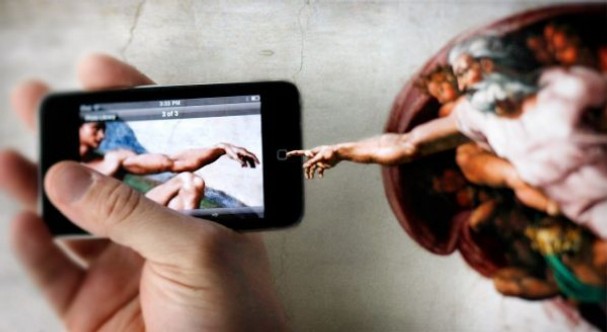 The first question at South Plains Community College was about the impact of social media on religion, not a question I had previously asked myself. Given the unbearable lightness of twitter chatter, the prognosis was not good. Only subsequently did it occur to me that the great spiritual leaders were really masters of great one-liners. “In the Beginning, God created the heavens and the earth.” “Blessed are the poor, for they shall inherit the earth.” “The Tao that can be said is not the true Tao.” “The Atman is Brahman.” Would those works as tweets?
The first question at South Plains Community College was about the impact of social media on religion, not a question I had previously asked myself. Given the unbearable lightness of twitter chatter, the prognosis was not good. Only subsequently did it occur to me that the great spiritual leaders were really masters of great one-liners. “In the Beginning, God created the heavens and the earth.” “Blessed are the poor, for they shall inherit the earth.” “The Tao that can be said is not the true Tao.” “The Atman is Brahman.” Would those works as tweets?
I had intensive talks with several students and a couple of the faculty members. My giving a talk about my experiences gives others an opportunity to share theirs. One of the professors described her own quite serious spiritual journey. I felt guided to do something I had never done before – simply to put my hand on her head. I was reluctant – it might be felt as intrusive or seen as theatrical – but I did as guided, asking her if I could place my hand on her head. She bowed slightly. It felt electric. “You have great spiritual energy,” I said, though unsure what those words exactly meant.
November 20, 2016
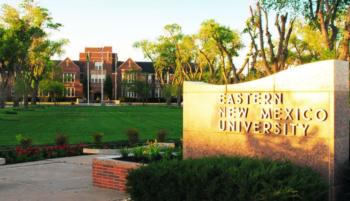 You meet such amazing people when you travel! At Eastern New Mexico University, one somewhat older woman arrived only toward the end of my talk but stayed through the discussion and later. We had a great talk with this extraordinarily accomplished lady. She is a biologist and was involved in the early DNA research of James Dewey Watson and others. One of the main research teams was in Germany, where she worked for several years. Hers has been a life of intellectual adventure, taking each ride as it was offered. Now, among other things, she teaches World Religions and does so with capacious knowledge and sensibility.
You meet such amazing people when you travel! At Eastern New Mexico University, one somewhat older woman arrived only toward the end of my talk but stayed through the discussion and later. We had a great talk with this extraordinarily accomplished lady. She is a biologist and was involved in the early DNA research of James Dewey Watson and others. One of the main research teams was in Germany, where she worked for several years. Hers has been a life of intellectual adventure, taking each ride as it was offered. Now, among other things, she teaches World Religions and does so with capacious knowledge and sensibility.
Our host, Steven Brust, the chair of the political science department, was amazing in a quite different way. He is, I am told, a serious Catholic, who provides intellectual and moral support to those students who can be so beleaguered in a modern secular university. I am not a Catholic but, even in my agnostic days teaching at Boulder, I saw the problem. Students would see their faith not only challenged intellectually but ridiculed and make the butt of jokes. Somebody needs to give them some philosophical karate to defend themselves and provide a positive role model of an intelligent, well-educated, believing person. Steven does that.
I happened to mention my participation in the Eric Voegelin Society. Lo and behold, Steven did his dissertation with David Walsh, a leading Voegelin scholar and, as it also happens, one of the first persons to whom I confided my encounter with God. It’s a small world!
November 18, 2016
 I have Christian friends who talk as if the whole point of salvation is to stay out of hell. Jesus becomes a free “Get Out of Jail” card. But, while I was given images of heaven, hell is never mentioned. What I was told is that judgment takes place at every moment. Are we doing the right thing or wrong? Are we becoming better persons or worse? Are we moving closer to God or farther away? There is an afterlife, but final judgment is not its purpose. It is the vertical dimension, the upward, Godward orientation of our lives that counts. We should ask each day, each moment, am I becoming more loving, more responsible, more honorable, or less? Am I doing what, as far as I can tell, God would want me to be doing? Do that, and the after life will take care of itself.
I have Christian friends who talk as if the whole point of salvation is to stay out of hell. Jesus becomes a free “Get Out of Jail” card. But, while I was given images of heaven, hell is never mentioned. What I was told is that judgment takes place at every moment. Are we doing the right thing or wrong? Are we becoming better persons or worse? Are we moving closer to God or farther away? There is an afterlife, but final judgment is not its purpose. It is the vertical dimension, the upward, Godward orientation of our lives that counts. We should ask each day, each moment, am I becoming more loving, more responsible, more honorable, or less? Am I doing what, as far as I can tell, God would want me to be doing? Do that, and the after life will take care of itself.
October 30, 2016
 One of the first times I ever shared my encounter with God publicly was in a talk to a meeting of the American Academy of Religion. The following speaker, Mikhail Sergeev, who teaches philosophy and religion at the University of the Arts in Philadelphia, was also chairing the session. He was so struck by what I told that he waived his presentation to allow more time to discuss my experience. Subsequently, he became a great reader of God: An Autobiography, and a friend. He generously gave me a book, The Rose of the World, by a Russian who had experiences similar or parallel to my own, including an vision wider than the frame of any one religion. The book influenced him greatly, Sergeev told me. He explained that he was half-Jewish and half-Russian, and had easy familiarity with both religions but was never quite at home in either one. That left him with, he said, “a marginalized self-consciousness” and “inner tension.”
One of the first times I ever shared my encounter with God publicly was in a talk to a meeting of the American Academy of Religion. The following speaker, Mikhail Sergeev, who teaches philosophy and religion at the University of the Arts in Philadelphia, was also chairing the session. He was so struck by what I told that he waived his presentation to allow more time to discuss my experience. Subsequently, he became a great reader of God: An Autobiography, and a friend. He generously gave me a book, The Rose of the World, by a Russian who had experiences similar or parallel to my own, including an vision wider than the frame of any one religion. The book influenced him greatly, Sergeev told me. He explained that he was half-Jewish and half-Russian, and had easy familiarity with both religions but was never quite at home in either one. That left him with, he said, “a marginalized self-consciousness” and “inner tension.”
“I was raised in the Soviet Union and communist ideology provided an umbrella identity for me that unified my dualist self-identification. When this ideology collapsed for me personally in 1984, I was faced with the choice to replace it with something equally unifying, but religions I turned to were both extremely archaic and very isolated from each other.
“The Rose of the World was like lightening in the sky to me because it was contemporary, highly sophisticated and provided a model for ‘religions without borders.’ I still believe that the separation of religions is an artificial construct and does not reach heaven.”
Indeed, the God who speaks to me spoke to Moses and to Jesus, and also to Gautama (known as the Buddha), the Hindu seers, and people back to our earliest ancestors. The project I was told to undertake, Theology Without Walls, is an effort to comprehend the fullness of divine reality. God: An Autobiography records how God led me through the sacred texts of many religions and guided me to see a larger story. Perhaps this is part of what God meant when he told me, “You stand on the threshold of a new spiritual era, a new axial age.”
October 17, 2016
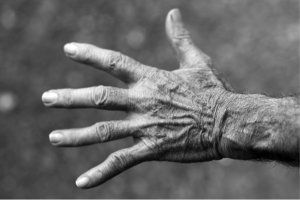 My 95-year-old dad is no fool, and he is quick to be suspicious, sometimes to a fault. A wonderful nurse named Elena visits once a week officially to put ointment on his legs but unofficially to look around and see if there is anything she can help with. Recently, she started scooping up his dirty clothes and said she was going to take them to the cleaners. “No, leave my things alone,” my dad said. So she put them down and quietly moved on.
My 95-year-old dad is no fool, and he is quick to be suspicious, sometimes to a fault. A wonderful nurse named Elena visits once a week officially to put ointment on his legs but unofficially to look around and see if there is anything she can help with. Recently, she started scooping up his dirty clothes and said she was going to take them to the cleaners. “No, leave my things alone,” my dad said. So she put them down and quietly moved on.
The following week Dad did not want to let her in. “You tried to steal my clothes.” She explained about the cleaners but he was still suspicious. “Mr. Martin, I would never steal your clothes.” He looked at her, wondering why he should believe her. “They wouldn’t fit me!” He stared at her for a moment and then started laughing. “No, I guess they wouldn’t.” And they were friends again.
October 8, 2016
 I suppose some people feel they are the center of all attention, of all interest and gossip and buzz, but I am the opposite. I wear a veil of anonymity, or so I imagine, and Abigail is rather like me. But it isn’t also so. Recently we attended a bittersweet going-away party for the “founding father” of our condo. A couple who used to live here returned for the occasion. At one point, the wife pulled Abigail aside. “I have read your book,” she said. Abigail just looked at her. She hasn’t published a book for years. “What book?” “A Good Look at Evil” was the answer. Not only has she read it, she has shared it with others, leading to many interesting discussions. A nice thing for an author to hear. Who knew anyone was reading that out-of-print book?
I suppose some people feel they are the center of all attention, of all interest and gossip and buzz, but I am the opposite. I wear a veil of anonymity, or so I imagine, and Abigail is rather like me. But it isn’t also so. Recently we attended a bittersweet going-away party for the “founding father” of our condo. A couple who used to live here returned for the occasion. At one point, the wife pulled Abigail aside. “I have read your book,” she said. Abigail just looked at her. She hasn’t published a book for years. “What book?” “A Good Look at Evil” was the answer. Not only has she read it, she has shared it with others, leading to many interesting discussions. A nice thing for an author to hear. Who knew anyone was reading that out-of-print book?
As I write in the God book, I fell in love with Abigail on the phone. She called for help with an issue at her college. It led to a big fight, reported in the New York papers. It was only after the fight was over (we won) that I met the Deputy Mayor. “We followed that fight with great interest,” he told me. The Mayor’s office had been on our side! If I had only known it at the time — they could have been helpful. Still, it was nice to learn that we had had a cheering section. Perhaps it would be better to assume that, sometimes at least, others are paying attention, are cheering for us, and to count on their silent support.
September 23, 2016
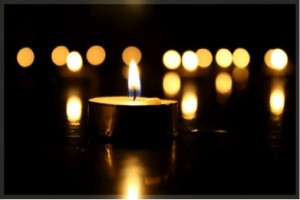 I have many readers in India and sometimes hear from them, but none more frequently or profoundly than Ajit Dass in Lucknow. He is precisely half way around the world. So I was surprised to hear from him in New Jersey. “Could we have lunch?” “Yes, indeed!” He and the friend with whom he was staying were students together at India’s M.I.T., not an environment that encourages one’s spirituality. Nevertheless, Ajit started studying the writings of spiritual masters and relating them to truths in mathematics. In this context, he came across the God: An Autobiography website, and started a conversation there with me.
I have many readers in India and sometimes hear from them, but none more frequently or profoundly than Ajit Dass in Lucknow. He is precisely half way around the world. So I was surprised to hear from him in New Jersey. “Could we have lunch?” “Yes, indeed!” He and the friend with whom he was staying were students together at India’s M.I.T., not an environment that encourages one’s spirituality. Nevertheless, Ajit started studying the writings of spiritual masters and relating them to truths in mathematics. In this context, he came across the God: An Autobiography website, and started a conversation there with me.
Over lunch, I told him he was now my ambassador to India, the emissary for the God book. I gave him an inscribed copy, and two signed copies to pass on to individuals of his choosing in India. “And then they will be ambassadors!” he said. Just so. I have received the assignment to bring this book to the public, and I cannot succeed alone. I can’t be the only messenger; I have to trust that others will do their best to spread the word. A review of the God book appeared, in of all places a motherhood magazine. What could the reviewer possibly find there that could be relevant to her readers? The book has a great message for our children, the reviewer said, that each of us is an ambassador from God. Yes, indeed.
September 13, 2016
 A faithful life ends and continues. Finishing a 35-year ministry, a local pastor we know just preached his last sermon, “Life Lessons.” One of the lessons was this: Rather than asking God to help us in our work, we should just let ourselves be instruments in God’s work. Sometimes God calls us out of our comfort zones – that is frequently true in his own ministry, he said. He is a quiet, bookish sort in a ministry that is anything but quiet or bookish. He feels called to do missionary work in India, training pastors there, in conditions that are quite uncomfortable. His message was certainly relevant to me, a deep introvert who must do radio and television, a modest person who must insist on the importance of what God has told me, someone who would prefer never to be noticed but must now make sure he is noticed. I would guess that the pastor’s message is relevant, in different ways, to all of us.
A faithful life ends and continues. Finishing a 35-year ministry, a local pastor we know just preached his last sermon, “Life Lessons.” One of the lessons was this: Rather than asking God to help us in our work, we should just let ourselves be instruments in God’s work. Sometimes God calls us out of our comfort zones – that is frequently true in his own ministry, he said. He is a quiet, bookish sort in a ministry that is anything but quiet or bookish. He feels called to do missionary work in India, training pastors there, in conditions that are quite uncomfortable. His message was certainly relevant to me, a deep introvert who must do radio and television, a modest person who must insist on the importance of what God has told me, someone who would prefer never to be noticed but must now make sure he is noticed. I would guess that the pastor’s message is relevant, in different ways, to all of us.
September 7, 2016
 In the Big Apple, Abigail and I had lunch with Jonathan Weidenbaum, one of my colleagues in the Theology Without Walls project at the American Academy of Religion. Jon is a young man of crackling energy and wide, nothing-human-is-foreign-to me interests. He and I come to religious matters by very different routes, but we share something quite important. Neither of us is inclined to gloss over the rough edges of the world or to think that our main job in life is to leap out of the world. There is work here to be done, and we are God’s partners in getting it done. We contend against what Jon calls the “No” at the heart of the reality or what God characterized to me as “the world’s guilty resistance.”
In the Big Apple, Abigail and I had lunch with Jonathan Weidenbaum, one of my colleagues in the Theology Without Walls project at the American Academy of Religion. Jon is a young man of crackling energy and wide, nothing-human-is-foreign-to me interests. He and I come to religious matters by very different routes, but we share something quite important. Neither of us is inclined to gloss over the rough edges of the world or to think that our main job in life is to leap out of the world. There is work here to be done, and we are God’s partners in getting it done. We contend against what Jon calls the “No” at the heart of the reality or what God characterized to me as “the world’s guilty resistance.”
August 30, 2016
 Pergamon was a great city of the ancient world, a regional capital built by Alexander the Great‘s successors. Abigail and I transported ourselves back to that time, via an exhibit at the Metropolitan Museum of Art. There we saw a magnificent city – another Athens or Rome spread out across adjoining hills near the eastern shores of the Aegean Sea. There they all were: Alexander, Homer, Demosthenes, , and (including one, none of whose plays have survived), not stylized and unreal, but as if they could start talking to you at any moment. Behind the intellectual life of this city of philosophers and mathematicians was an aesthetic, a sense of form and balance. The Greeks were fascinated by ratios and equations, the mathematics of musical scales and harmonies and of visual perspective. “Nothing in excess.” Everything in precise proportion and equipoise. Abigail wondered, if Hegel is right that a civilization falls because of its own inner contradictions, how could this civilization of perfect consistency and completeness disappear? I don’t have an answer to that, but it is striking that Greece had the most unconvincing religion of all the great cultures – a rich mythology but not gods who commanded conviction, a stand-in perhaps for something more real.
Pergamon was a great city of the ancient world, a regional capital built by Alexander the Great‘s successors. Abigail and I transported ourselves back to that time, via an exhibit at the Metropolitan Museum of Art. There we saw a magnificent city – another Athens or Rome spread out across adjoining hills near the eastern shores of the Aegean Sea. There they all were: Alexander, Homer, Demosthenes, , and (including one, none of whose plays have survived), not stylized and unreal, but as if they could start talking to you at any moment. Behind the intellectual life of this city of philosophers and mathematicians was an aesthetic, a sense of form and balance. The Greeks were fascinated by ratios and equations, the mathematics of musical scales and harmonies and of visual perspective. “Nothing in excess.” Everything in precise proportion and equipoise. Abigail wondered, if Hegel is right that a civilization falls because of its own inner contradictions, how could this civilization of perfect consistency and completeness disappear? I don’t have an answer to that, but it is striking that Greece had the most unconvincing religion of all the great cultures – a rich mythology but not gods who commanded conviction, a stand-in perhaps for something more real.
August 25, 2016
Earlier I wrote about  Mark Groleau, who interviewed me for his podcast series. As we discussed obedience to God, he told me about the odd incident I reported. He had headed off to buy the BBQ of his dreams but, as he neared the exit to the store, he received the strong sense that he was not supposed to buy it. He obediently turned off and went back home. In the God book, I talk about my experiencing similarly “pointless” divine commands early in my experience with God. Recently, I heard from Mark again. There is more to the story.
Mark Groleau, who interviewed me for his podcast series. As we discussed obedience to God, he told me about the odd incident I reported. He had headed off to buy the BBQ of his dreams but, as he neared the exit to the store, he received the strong sense that he was not supposed to buy it. He obediently turned off and went back home. In the God book, I talk about my experiencing similarly “pointless” divine commands early in my experience with God. Recently, I heard from Mark again. There is more to the story.
“Last Thursday I cut the audio for our conversation (which was released TODAY on Toronto radio and will be up in 2 weeks on my own podcast site) – and was particularly reminded about how I still don’t have a BBQ or an answer to why I might have heard God say not to buy one.
“Well, last Thursday evening a friend came over for a drink – he’s in the middle of a painful separation from his wife and they’re dividing their stuff moving out. Well into the evening, he says, ‘I don’t know what to do with my stuff. For example, my BBQ. I love that thing; it was a gift and I can’t just get rid of it. But I’m moving into a condo. I can’t take it. I’d love someone to take it off my hands.’ I almost dropped my pipe. He had no idea I didn’t have a BBQ; he assumed I did. I fell over myself feeling I’d be happy to. Could barely get the words out. The very day I reheard our conversation about the BBQ, my buddy offers me his BBQ, bono.
“And so now, there it sits on my deck, a testimony to patience, listening to God, and how delighted my buddy is that I didn’t have one of my own yet. Because I turned the car around that day.
“Thanks, Jerry… still impacted by our conversation, my appreciation of you, and telling everyone. :)”
A friend who is in deep grief, having recently lost his wife, asked me whether the God of the universe could possibly care about his individual suffering. Well, if God can care about Mark’s BBQ, His capacity for caring must have much greater bandwidth than it is easy for us to imagine.
August 19, 2016
 At 95, my dad cannot always find the right words, or any words, for what he wants to say, and he can forget half-way through a sentence where he was going with it. But it is a very great blessing that he has not suffered personality distortion, which can happen. He is still the reasonable, self-contained, good-humored, down-to-earth guy he always ways. Having breakfast with him in California recently, a lady at another table spoke up across the room, looking at me: “You look like my son-in-law!” I was surprised that dad, who is impossibly deaf, heard her. But he leaned over to me: “Tell her ‘he must be very handsome.’”
At 95, my dad cannot always find the right words, or any words, for what he wants to say, and he can forget half-way through a sentence where he was going with it. But it is a very great blessing that he has not suffered personality distortion, which can happen. He is still the reasonable, self-contained, good-humored, down-to-earth guy he always ways. Having breakfast with him in California recently, a lady at another table spoke up across the room, looking at me: “You look like my son-in-law!” I was surprised that dad, who is impossibly deaf, heard her. But he leaned over to me: “Tell her ‘he must be very handsome.’”
August 13, 2016
 Gary Goldberg has had a fascinating spiritual journey. He is the host of “In the Spirit” on WPRI in upstate New York. His father was Jewish and his mother Catholic. To marry her, he had to agree to raise the kids in the church. Young Gary went through the full course of religious acculturation , like a wick repeatedly dipped in tallow to make a candle. All the time, he says, he was seeking God, searching for a personal relationship with the divine. But he did not find it there. Today he best relates to the divine through sitar music, meditation, and the bhakti tradition of Krishna, whom he loves. But, like the best finders, he remains a seeker, always looking for a deeper, more encompassing life with God. I have another friend, raised Catholic, who remains so. She does find God there. But she too remains a seeker, and tells all her friends about God: An Autobiography. Some people find God in the faith they were born into. Some find God elsewhere, sometimes “anywhere but” their childhood religion. Neither group has the advantage over the other. God is happy to meet us where we find Him.
Gary Goldberg has had a fascinating spiritual journey. He is the host of “In the Spirit” on WPRI in upstate New York. His father was Jewish and his mother Catholic. To marry her, he had to agree to raise the kids in the church. Young Gary went through the full course of religious acculturation , like a wick repeatedly dipped in tallow to make a candle. All the time, he says, he was seeking God, searching for a personal relationship with the divine. But he did not find it there. Today he best relates to the divine through sitar music, meditation, and the bhakti tradition of Krishna, whom he loves. But, like the best finders, he remains a seeker, always looking for a deeper, more encompassing life with God. I have another friend, raised Catholic, who remains so. She does find God there. But she too remains a seeker, and tells all her friends about God: An Autobiography. Some people find God in the faith they were born into. Some find God elsewhere, sometimes “anywhere but” their childhood religion. Neither group has the advantage over the other. God is happy to meet us where we find Him.
August 8, 2016
 It was nice seeing my granddaughter, Kelsea, in San Diego. She was full of reflections on her first year at college. She loves her sisters in the sorority. They have helped her get through the troubled times – events like a car crash in the midnight fog as well as the pressures and down days that are part of college life. She described the accident, which totaled her car, and then asked, “What did I learn from the experience?” She seems to ask herself that question after every significant event, a remarkably thoughtful way to live. She tended to blame herself for the accident, even though it was really just one of those things that happen when cars can’t see each other. She tends to blame herself for everything, she said, and this was an opportunity to counter that tendency. Her sisters were really there for her, for which she was deeply appreciative, and this made her want to be present for them and other friends when they had trouble. I don’t remember being thoughtful in this way when I was her age. Life is more complicated these days, and I guess young people have to engage in more complicated lifemanship. If Kelsea is an example, some are succeeding.
It was nice seeing my granddaughter, Kelsea, in San Diego. She was full of reflections on her first year at college. She loves her sisters in the sorority. They have helped her get through the troubled times – events like a car crash in the midnight fog as well as the pressures and down days that are part of college life. She described the accident, which totaled her car, and then asked, “What did I learn from the experience?” She seems to ask herself that question after every significant event, a remarkably thoughtful way to live. She tended to blame herself for the accident, even though it was really just one of those things that happen when cars can’t see each other. She tends to blame herself for everything, she said, and this was an opportunity to counter that tendency. Her sisters were really there for her, for which she was deeply appreciative, and this made her want to be present for them and other friends when they had trouble. I don’t remember being thoughtful in this way when I was her age. Life is more complicated these days, and I guess young people have to engage in more complicated lifemanship. If Kelsea is an example, some are succeeding.
August 3, 2016
 Abigail and I visited my daughter Claire and her family in San Diego. She has married a guy, Dave, a solid citizen with whom she is much happier than when she was single and raising a child alone. Claire and her husband now have a second child, the seven-year-old Alex. He is willful and irrepressible, and has more energy than he well knows what to do with. They have done the right thing – they have him in Cub scouts, Little League, racing little hand-made cars, designing vast buildings on his computer, and I forget what else. All that energy is being routed to power up a purposeful life. Good for him, and good for them!
Abigail and I visited my daughter Claire and her family in San Diego. She has married a guy, Dave, a solid citizen with whom she is much happier than when she was single and raising a child alone. Claire and her husband now have a second child, the seven-year-old Alex. He is willful and irrepressible, and has more energy than he well knows what to do with. They have done the right thing – they have him in Cub scouts, Little League, racing little hand-made cars, designing vast buildings on his computer, and I forget what else. All that energy is being routed to power up a purposeful life. Good for him, and good for them!
July 29. 2016
The Kirkus review is finally out. The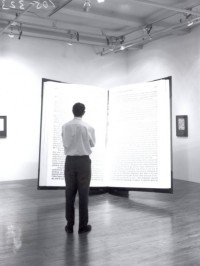 reviewer finds God: An Autobiography to be “a captivating religious dialogue for the modern age,” written in “an immensely readable prose.” Wow! I am pleased not only at the high marks, but at the careful attention the reviewer gave to reading the book and writing about it concisely and elegantly.
reviewer finds God: An Autobiography to be “a captivating religious dialogue for the modern age,” written in “an immensely readable prose.” Wow! I am pleased not only at the high marks, but at the careful attention the reviewer gave to reading the book and writing about it concisely and elegantly.
Like many reviewers, this one tends to assume that I am the author of the God who speaks to me: “His portrait of God is a remarkable dramatic construct …” Another favorable reviewer calls it a “non-fiction novel.” In fact, the events related in the book actually happened. God’s words are literally what I was told in prayer. I do not fault others for assuming that this is a literary device of some sort. How would they know it is not? And, in some ways, the distinction may not matter. But, for me personally, it is crucial. I would not have given up a great career to write a book about my own spiritual philosophy (which I didn’t even have). I have followed the guidance to do so because I believe it comes from a higher source. And, in part because of what God tells me in this book, I have come to believe that everyone who pays attention has cues, prompts, intuitions, and epiphanies from that higher source. I hope that my experience will help readers become more open to their own. Read Review : CLICK HERE
July 24, 2016
 When Abigail and I were in Phoenix, the sun baked down at slightly over 100 degrees. Residents, who enjoy the illusion that this desert is habitable, take the summer heat as a feature not a glitch. But, as we were leaving, there were warnings for the next day that it was going to get REALLY hot, well over 110. Just standing in the sun with an uncovered head too long would be life threatening. Yet this is now one of the ten major metropolitan areas. The world made possible by irrigation and air-conditioning.
When Abigail and I were in Phoenix, the sun baked down at slightly over 100 degrees. Residents, who enjoy the illusion that this desert is habitable, take the summer heat as a feature not a glitch. But, as we were leaving, there were warnings for the next day that it was going to get REALLY hot, well over 110. Just standing in the sun with an uncovered head too long would be life threatening. Yet this is now one of the ten major metropolitan areas. The world made possible by irrigation and air-conditioning.
July 19, 2016
 A few months ago, I was at the drugstore. I had a prescription and they had the medication. But they couldn’t give it to me. The computer was down. I could have dropped dead waiting. There is a great old movie, made by Orson Welles, called “The Magnificent Ambersons.” The film opens with the narrator explaining, as we see and hear horse-drawn sleighs at Christmastime, the temporal setting. Our story takes place before all these speedy devices (such as the automobile that is about to make its appearance, driven by a very enthusiastic young man) and people had plenty of time. These days, people count time by the seconds? What’s wrong with this picture?
A few months ago, I was at the drugstore. I had a prescription and they had the medication. But they couldn’t give it to me. The computer was down. I could have dropped dead waiting. There is a great old movie, made by Orson Welles, called “The Magnificent Ambersons.” The film opens with the narrator explaining, as we see and hear horse-drawn sleighs at Christmastime, the temporal setting. Our story takes place before all these speedy devices (such as the automobile that is about to make its appearance, driven by a very enthusiastic young man) and people had plenty of time. These days, people count time by the seconds? What’s wrong with this picture?
July 12, 1016
 Has something gone wrong with us? We landed in California, tired from airplanes, Arizona highways, and the bright lights of publicity, so we decided on an easy schedule the next day to refresh and muse. We just needed to contact people to confirm next week’s various gettings-together, including with Dad’s caregivers and his lawyer. Then disaster. No internet! Then internet, but no email. Would Abigail be able to do send her weekly column? Frantic calls to our techno-helpers back home. No responses. We don’t even have phone numbers for some of the people (who calls, anymore?). Come evening, a helper calls back. Try this. Try that. What is our password? It’s by my desk back home. Finally, the helper – the wonderful Sharon Brebner – cracks the code. We can breathe again. Life moves on. We are connected to the world.
Has something gone wrong with us? We landed in California, tired from airplanes, Arizona highways, and the bright lights of publicity, so we decided on an easy schedule the next day to refresh and muse. We just needed to contact people to confirm next week’s various gettings-together, including with Dad’s caregivers and his lawyer. Then disaster. No internet! Then internet, but no email. Would Abigail be able to do send her weekly column? Frantic calls to our techno-helpers back home. No responses. We don’t even have phone numbers for some of the people (who calls, anymore?). Come evening, a helper calls back. Try this. Try that. What is our password? It’s by my desk back home. Finally, the helper – the wonderful Sharon Brebner – cracks the code. We can breathe again. Life moves on. We are connected to the world.
July 6, 2016
 When we headed for Arizona, I asked Pat McMahon, host of the TV program we would be doing, who else I should get to know while I was in Phoenix. He put me in touch with Anne Taylor of the Arizona Interfaith Movement. The ARIFM includes 22 different faith groups, more than I even knew existed in this barren state, whose main residents until recently had been cactus and rock. It turned out that their council was holding its last meeting of the year the evening we would be in town, and Anne squeezed me into the program.
When we headed for Arizona, I asked Pat McMahon, host of the TV program we would be doing, who else I should get to know while I was in Phoenix. He put me in touch with Anne Taylor of the Arizona Interfaith Movement. The ARIFM includes 22 different faith groups, more than I even knew existed in this barren state, whose main residents until recently had been cactus and rock. It turned out that their council was holding its last meeting of the year the evening we would be in town, and Anne squeezed me into the program.
What an amazing group it was! People from all these traditions who have been meeting for 25 years and learning how to get along and work on projects together. But something deeper was taking place. They had not merely come to “understand” one another. They were drawing spiritual insight from one another’s different perspectives. Each was learning that God – the divine reality by whatever name – is larger than a single tradition, and yet, amazingly, is still the God one has always known, in more familiar terms, in one’s own tradition.
June 30, 2016
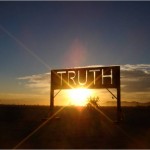 Another first: Abigail and me on TV. Pat McMahon is a broadcasting legend in Arizona – an award-winner in news, comedy, and talk shows, now host of a weekly radio show called “God talk” and a daily TV show called “Morning Scramble.” He did my first radio interview ever, and there was never a better one. On radio, I had an hour; on TV, only five and a half minutes. Pat did a great intro: “This is a show where we bring on top names, and what name could be better than God? And who better to talk to than the guy who has a two-way line to God?” I said a little about the book, up to when the Voice announced, “I am God,” and then Pat asked Abigail, “Why did God pick your husband?” An interesting question, one no one had asked before. “I have known two truthful people,” she answered. “One was my father and the other is Jerry.” She went on from there. That sounded good to me, and to Pat too, I think.
Another first: Abigail and me on TV. Pat McMahon is a broadcasting legend in Arizona – an award-winner in news, comedy, and talk shows, now host of a weekly radio show called “God talk” and a daily TV show called “Morning Scramble.” He did my first radio interview ever, and there was never a better one. On radio, I had an hour; on TV, only five and a half minutes. Pat did a great intro: “This is a show where we bring on top names, and what name could be better than God? And who better to talk to than the guy who has a two-way line to God?” I said a little about the book, up to when the Voice announced, “I am God,” and then Pat asked Abigail, “Why did God pick your husband?” An interesting question, one no one had asked before. “I have known two truthful people,” she answered. “One was my father and the other is Jerry.” She went on from there. That sounded good to me, and to Pat too, I think.
June 26, 2016

Another first for me: speaking at a church. Interestingly, an “interfaith” church. (I didn’t know they had those.) Members had already been told the gist of the book: it is about what God told the author in prayer. I chatted with this one and that one before the service began. “God talks to me all the time,” a wonderfully sincere woman said. “It can be just the light falling on the leaf in a certain way.” Just so. Another taught me how to hug “heart-to-heart.” I dropped the part of my talk designed to mitigate skepticism. These folks would be open.
There is much in the book that would have fit the 16 principles posted on their website, but when I prayed beforehand, I was told, “Tell them what they don’t know.” So I spoke to the unasked question: What is all this – interactions with human beings and all – like for God? We ask God to understand our every hurt, but we show little empathy for divine suffering. And God surely suffers.
I was right. They were open-minded and open-hearted. Many questions came, some penetrating to rather complex issues in the book, issues I was not quite prepared to explicate. I had not fully come to terms with them myself, I suppose. That’s what meaningful discourse is like.
June 22, 2016
 Gary Goldberg has had a fascinating spiritual journey. He is the host of “In the Spirit” on WPRI in upstate New York. His father was Jewish and his mother Catholic. To marry her, he had to agree to raise the kids Catholic. So, like the wick dipped in tallow repeatedly to make a candle, young Gary participated in all the liturgies, training, and acculturation that belongs to that tradition. All the time, he says, he was seeking God, searching for a personal relationship with the divine, and he did not find it there. Today he best relates to the divine through sitar music, meditation, and the bhakti tradition of Krishna, whom he loves. But, like the best finders, he remains a seeker, always looking for a deeper, more encompassing life with God. I have another friend, raised Catholic who remains so. She does find God there. But, again like the best finders, she is still a seeker, and tells all her friends about God: An Autobiography. Some people find God in the faith they were born into. Some find God elsewhere, sometimes “anywhere but” their childhood religion. Neither group has the advantage over the other. God is happy to meet us where we find Him.
Gary Goldberg has had a fascinating spiritual journey. He is the host of “In the Spirit” on WPRI in upstate New York. His father was Jewish and his mother Catholic. To marry her, he had to agree to raise the kids Catholic. So, like the wick dipped in tallow repeatedly to make a candle, young Gary participated in all the liturgies, training, and acculturation that belongs to that tradition. All the time, he says, he was seeking God, searching for a personal relationship with the divine, and he did not find it there. Today he best relates to the divine through sitar music, meditation, and the bhakti tradition of Krishna, whom he loves. But, like the best finders, he remains a seeker, always looking for a deeper, more encompassing life with God. I have another friend, raised Catholic who remains so. She does find God there. But, again like the best finders, she is still a seeker, and tells all her friends about God: An Autobiography. Some people find God in the faith they were born into. Some find God elsewhere, sometimes “anywhere but” their childhood religion. Neither group has the advantage over the other. God is happy to meet us where we find Him.
June 16, 2016

Whether, when it is seen from the other side, death is a tragedy we do not know. But, from this side, it certainly is. In a recent talk, I was asked by a woman in the audience about our loved ones who have passed away. Are they okay? It happened to be a lady I know – a widow whose husband passed away more than ten years ago. One day I asked her if it had gotten better, any easier to live with. No, she said, it gets worse. Like a homesickness, the yearning grows stronger with time. Now she was asking this question from the audience. What could I tell her? How do I know? All I could report is that I was given three visions of the afterlife. They are not identical, and I left all three in the book – how could I adjudicate between them? I think they can be reconciled, but I leave that to readers to decide. However, I think I could say one thing about all three visions: Those who have passed before us are okay.
June 13, 2016

My dad doesn’t remember what he did yesterday, he is full of stories from earlier in life. I have heard them often and sometimes, in the retelling, I learn something new. When he was 19, he met my mother at a dance. She was really cute but looked too young. She was nearly 18, “close enough.” Three weeks later, he asked her to marry him. She agreed, and he thought to ask her father. “What if he says no,” he asked her. “Then I won’t do it.” “So I won’t ask him.” They went off to find the preacher. He had already gone to bed but his wife waked him, and he performed the ceremony. Afterwards, he and mom started “messing around,” as he puts it, and it was time to “get a room.” Dad had always been what they called “wild,” risking illegality and dispute. But he stopped to make a phone call. Her parents would worry. They didn’t have a phone so he called the gas station across the street. “Please go over and tell Mrs. Young that her daughter is married.”
June 10, 2016
 Since the God book is the first book I have ever written, I keep having first-ever experiences. I was invited to do what they call a “reading” of a portion of the book. Most of the readers and audience were poets, both known and unknown. Much of my book is intellectual – I put question after question to God. But poets, while thoughtful, work from their feelings and intuitions. I read several short sections from the God book, and included the passage about how my personal feelings of shame from childhood, which I wore on my forehead in the form of a prominent crimson birthmark, a mark of Cain. I still cannot read that chapter and revisit those feelings without a hint of tears. It was somewhat painful, almost embarrassing, to read out loud, but the good poets, sweet souls themselves, nodded as I read.
Since the God book is the first book I have ever written, I keep having first-ever experiences. I was invited to do what they call a “reading” of a portion of the book. Most of the readers and audience were poets, both known and unknown. Much of my book is intellectual – I put question after question to God. But poets, while thoughtful, work from their feelings and intuitions. I read several short sections from the God book, and included the passage about how my personal feelings of shame from childhood, which I wore on my forehead in the form of a prominent crimson birthmark, a mark of Cain. I still cannot read that chapter and revisit those feelings without a hint of tears. It was somewhat painful, almost embarrassing, to read out loud, but the good poets, sweet souls themselves, nodded as I read.
June 5, 2016
 I gave my first-ever talk at a church. As I report in the God book, I was told not to affiliate with any particular religion or denomination. The content of the book itself seems to be Christian-plus, but also Jewish-plus, Hindu-plus, and so on. It is a conversation with “God of Israel” and also the “God of All.” The “plus” makes people nervous, since religions usually claim to be not just the truth, but the only truth. They see their rivals not as only mistaken in this and that, but as paving the highway to perdition. However, my experience has not confirmed that worry. Evangelicals, mainstream Protestants, and Catholics (a priest, no less) have had me on their radio programs. What God has told me relates directly to their concerns as well, and they have often invited me back. Even to skeptics and atheists, to my surprise, find something in the God book that speaks to them. I looked forward to this first churchly talk, and will report on it shortly.
I gave my first-ever talk at a church. As I report in the God book, I was told not to affiliate with any particular religion or denomination. The content of the book itself seems to be Christian-plus, but also Jewish-plus, Hindu-plus, and so on. It is a conversation with “God of Israel” and also the “God of All.” The “plus” makes people nervous, since religions usually claim to be not just the truth, but the only truth. They see their rivals not as only mistaken in this and that, but as paving the highway to perdition. However, my experience has not confirmed that worry. Evangelicals, mainstream Protestants, and Catholics (a priest, no less) have had me on their radio programs. What God has told me relates directly to their concerns as well, and they have often invited me back. Even to skeptics and atheists, to my surprise, find something in the God book that speaks to them. I looked forward to this first churchly talk, and will report on it shortly.
June 1, 2016
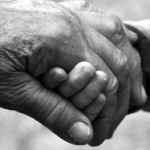 My dad just turned 95. He lives independently in California – 3000 miles away. I called to wish him a happy birthday. “Congratulations, Dad. How does it feel to be that old?” “I don’t feel a day over 94,” he replied. He is pain-free and on his feet. We will visit him soon, and I will go to the mall to walk with him and his buddies, and then to Tai Chi where we have the pleasure of seeing the shapely leader, Pat, whom we call simply the Pretty Lady. Dad still has an eye for the ladies. George, his financial advisor, called and told me that Dad needed a new calendar. I sent him THE special issue of Sports Illustrated. “Thanks,” Dad said, “I have enough beautiful women to last the rest of my life.” Which, hopefully, has a long way to go still.
My dad just turned 95. He lives independently in California – 3000 miles away. I called to wish him a happy birthday. “Congratulations, Dad. How does it feel to be that old?” “I don’t feel a day over 94,” he replied. He is pain-free and on his feet. We will visit him soon, and I will go to the mall to walk with him and his buddies, and then to Tai Chi where we have the pleasure of seeing the shapely leader, Pat, whom we call simply the Pretty Lady. Dad still has an eye for the ladies. George, his financial advisor, called and told me that Dad needed a new calendar. I sent him THE special issue of Sports Illustrated. “Thanks,” Dad said, “I have enough beautiful women to last the rest of my life.” Which, hopefully, has a long way to go still.
May 29, 2016
 Abigail and I saw “The Young Messiah.” It is one of several religious-themed movies that have been making the theatre, some good, some not so good. This one is based on a novel by Anne Rice – yes, the vampire novelist, but recently she has written two or three Bible-oriented movies.
Abigail and I saw “The Young Messiah.” It is one of several religious-themed movies that have been making the theatre, some good, some not so good. This one is based on a novel by Anne Rice – yes, the vampire novelist, but recently she has written two or three Bible-oriented movies.
We know very little of Jesus’ childhood. At the age of 12, he is reported to have been found expounding scripture, to the amazement of his elders in the synagogue. The movie draws from stories in apocryphal literature that do not have scriptural standing but fill in missing pieces, real or speculative, of Jesus’ story.
Imagine, if you can, what it was like to be Jesus, put yourself in his sandals, and ask yourself: What is it like to be born divine, as son of God (however your theology defines that)? As a one-year old, do you know you are God? That doesn’t quite sound right. Does it come to you much later, in a single stroke, while, for example, being dipped in the river by John the Baptist? Or, as this movie speculates, do you begin to notice that you are not quite like the other kids. You seem to have wisdom beyond your years and a soothing, even healing, touch. That is closer to the version I received, which is reported in the book. This slow dawning of divinity underscores the human side of Jesus, which is hard to keep in mind when thinking about so ethereal a figure. But, if you think about it, this simple humanity of Jesus is probably essential to his ability to connect us to his Father, whom he addressed in the familiar way, as abba, best translated as “papa.” The movie nicely shows us this side of the young Jesus.
May 25, 2016
 We watched “Downton Abbey,” the final season. People have told us that, when it is over, you miss it as if you and they have suddenly moved away, never to see each other again. Abigail and I were wondering what gave it that grip on its viewers. It is, of course, well-written, staged, and acted. But that is just the label on the box; what are the actual ingredients? It attaches us to the extent that the characters are attached to one another — Bates and his wife, the sometimes obtuse Lord Grantham and his understanding wife, Carson and “Mrs.” Carson, Lady Edith and her daughter, and others who befriend one other when a friend is much needed.
We watched “Downton Abbey,” the final season. People have told us that, when it is over, you miss it as if you and they have suddenly moved away, never to see each other again. Abigail and I were wondering what gave it that grip on its viewers. It is, of course, well-written, staged, and acted. But that is just the label on the box; what are the actual ingredients? It attaches us to the extent that the characters are attached to one another — Bates and his wife, the sometimes obtuse Lord Grantham and his understanding wife, Carson and “Mrs.” Carson, Lady Edith and her daughter, and others who befriend one other when a friend is much needed.
But the network of attachments does not account for the difficulty of leaving it behind. What is crucial is the longitudinal setting – it is a family and societal epic of stability and change. The old is elegant, reliable, and authoritative. The new is inelegant, unreliable, and dashes authority to pieces, necessarily so – we can all see that – but there is still something to mourn in the passing of the old, even if outdated.
So much of life is like that. I left Boulder over thirty years ago, and yet in some ways that town and campus still seem like home and, well, there are no friends like old friends. My years in Washington, D.C., a beautiful and exciting city, were full of adventure and discovery and, though I no longer need those adventures, I miss those friends and the purposes that brought us together. My life has moved on in new and much better ways, but the Rocky Mountains still loom above the Boulder campus and the Washington Monument still presides over the nation’s capital.
May 22, 2016
“Don’t go to the BB Q place!” That was the divine message received by Mark Groleau one day, just as he was nearing this destination. Mark is the host of the Toronto-based podcast, WikiGod, on which I was guest. There was no apparent reason for the command, then or since. But he obeyed.
Q place!” That was the divine message received by Mark Groleau one day, just as he was nearing this destination. Mark is the host of the Toronto-based podcast, WikiGod, on which I was guest. There was no apparent reason for the command, then or since. But he obeyed.
There was a time, early in my adventure with God, that I was receiving numerous “pointless” commands – and doing them. Doubting whether these could really be from God, I was guided to a certain book in a bookstore. Opening it, my eyes fell upon the words addressed to God by the people of Israel when they accepted the covenant: “Everything You have commanded, we will do.”
I was being given a training in obedience, like spiritual boot camp. Perhaps Mark was being given training, or a test. If so, he passed.
May 16, 2016
 I have been doing a lot of radio interviews on the book, and a couple of television programs (via Skype). The challenging, and interesting, part is that every host is coming from a different place. They have their own beliefs and commitments, and they get uncomfortable and even argumentative if the book says something that sounds different. I have no interest in being argumentative. I am not trying to persuade anybody of anything. My only job is, as God told me, to be “a serious reporter of what you are told in prayer.” My only credential is that I am an honest guy who is telling the story straight. Whether they believe it is up to them.
I have been doing a lot of radio interviews on the book, and a couple of television programs (via Skype). The challenging, and interesting, part is that every host is coming from a different place. They have their own beliefs and commitments, and they get uncomfortable and even argumentative if the book says something that sounds different. I have no interest in being argumentative. I am not trying to persuade anybody of anything. My only job is, as God told me, to be “a serious reporter of what you are told in prayer.” My only credential is that I am an honest guy who is telling the story straight. Whether they believe it is up to them.
May 12, 2016

I am, as perhaps you are, older than I used to be – not superannuated (my father is still alive, after all) – but I certainly have more mileage on my tires. I only read War and Peace a couple of years ago. Its length and forbidding title had held me back. It is puzzling as a novel because the dashing character who looked to be the hero dies long before the end. But two other young pairs do find one another and so there is some satisfaction in that. But, instead of “they lived happily ever after” with the scene fading into twilight pastels, the narrative skips along to their middle years. What we see there is the quiet life of married couples, “stouter and broader,” living out the duties, constraints, and quiet pleasures of marriage and children. The critic George Steiner, whose little book on Tolstoy and Dostoevsky I am just reading, finds the characters “old and dismal” and laments their “sad metamorphosis.” I thought, oh yes, this was Steiner’s first book. He was young and full of life’s promise. There is nothing wrong with that, but promise is only Possibility, yet to be actualized into anything real. It is easy for Possibility to be dazzling. But Actuality consists of the hard grain of life. It has its challenging curvature, shaped by duties and routines — that are not, however, without their own quiet ecstasy.
May 9, 2016
 There are elaborate arguments from design – that the organized universe could not have come about without a master intelligence — based on probability theory and the like. They are impressive but always left me cold. My own sense of the meaning of the universe starts littler than that, and more from the bottom up. We have purposes built right into our nature that seem to have a divine trajectory, and purposes that emerge in our lives in cooperation or constructive conflict with those we affect.
There are elaborate arguments from design – that the organized universe could not have come about without a master intelligence — based on probability theory and the like. They are impressive but always left me cold. My own sense of the meaning of the universe starts littler than that, and more from the bottom up. We have purposes built right into our nature that seem to have a divine trajectory, and purposes that emerge in our lives in cooperation or constructive conflict with those we affect.
In an effort to make up for my poetry deficiency by reading a little here and there, I came across lines by Robert Frost. He says he studied the sky to see if the universe
“had the purpose from the first
To produce purpose”
I like that simple formulation. The larger purpose of the whole is precisely to provide the wherewithal for the littler purposes that make up your and my lives.
May 5, 2016
 Abigail and I participate in a Dialogue Group consisting almost exclusively of Christians and Jews. Last time I brought a copy of the book and briefly told the group that I had had conversations with God. There was a feeling, I thought, of polite discomfort. Why wouldn’t there be?
Abigail and I participate in a Dialogue Group consisting almost exclusively of Christians and Jews. Last time I brought a copy of the book and briefly told the group that I had had conversations with God. There was a feeling, I thought, of polite discomfort. Why wouldn’t there be?
We gave a ride home to a Southern Baptist pastor, a very fine man dedicated to a set of scriptures that do not invite further revelations from God. Nevertheless, he did not doubt that God was contacting me. He seemed to have arrived, from a very different starting point, at a view similar to my own – that God calls each of us in God’s own way and does not give us all the same assignment. As the Good Book says, “The spirit blowethwhere it listeth.”
April 28, 2016
 Wow, reviews – great reviews – have already appeared on Amazon.com! Most are by people to whom I sent galleys. Some are by “Anonymous” so I can’t be sure. Since the ones I know are people for whom I have great respect, I am humbled. Since I feel an obligation to get the word out, so that God wasn’t wasting his breath in talking to me, I am also grateful for their help. But, really, I mean really, readers have posted wonderful comments. I can’t claim much of the credit, since God wrote 80 percent of the book, but at least my smaller part didn’t spoil the whole!
Wow, reviews – great reviews – have already appeared on Amazon.com! Most are by people to whom I sent galleys. Some are by “Anonymous” so I can’t be sure. Since the ones I know are people for whom I have great respect, I am humbled. Since I feel an obligation to get the word out, so that God wasn’t wasting his breath in talking to me, I am also grateful for their help. But, really, I mean really, readers have posted wonderful comments. I can’t claim much of the credit, since God wrote 80 percent of the book, but at least my smaller part didn’t spoil the whole!
April 22, 2016
 One thing we all have to guard against is the idolatry of belief, not only in religion but in politics and other areas as well. However we come to our beliefs, we tend to hold them tightly once we have them. I recently ran across the following statement by the great intellectual historian James Harvey Robinson: “We are incredibly heedless in the formation of our beliefs, but find ourselves filled with illicit passion for them when anyone proposes to rob us of our companionship. It is obviously not the ideas themselves that are dear to us, but our self-esteem which is threatened. Most of our so-called reasoning consists in finding arguments for going on believing as we already do.”
One thing we all have to guard against is the idolatry of belief, not only in religion but in politics and other areas as well. However we come to our beliefs, we tend to hold them tightly once we have them. I recently ran across the following statement by the great intellectual historian James Harvey Robinson: “We are incredibly heedless in the formation of our beliefs, but find ourselves filled with illicit passion for them when anyone proposes to rob us of our companionship. It is obviously not the ideas themselves that are dear to us, but our self-esteem which is threatened. Most of our so-called reasoning consists in finding arguments for going on believing as we already do.”
Sometimes the very most spiritual people, who in some ways have the most open souls, latch themselves onto a tightly chorded set of beliefs, and anathematize anyone who finds a different spiritual path. The world may be divided into Seekers and Finders, but the best Seekers are those who have some glimmer of the divine, and the best Finders are those who continue to seek.
April 18, 2016
Surprised to find myself in a little Twitter debate with Nicholas G. Hahn, editor at RealReligion.com. In a piece of mine just run at his site, “The Soul of an Animal,” I reported I had been told in prayer that “each animal has a distinctive personality, its own soul.” If animals have souls, why shouldn’t they have an afterlife? http://bit.ly/226keFy
Mr. Hahn tweeted that this was “bad eschatology.” My response was,
@NGHahn3 Every pet owner knows that Fido has a unique personality and a soul worthy of heaven!
It turns out that Mr. Hahn had published, “Puppies, Prayers, and a Political Menagerie,” Nov. 19, 2015, in the Wall Street Journal trying to rebut Christians who believe animals have souls, in connection with some policy issue.
Here it is: http://on.wsj.com/23z3nBh
I was not a party to that dispute, but I am happy to speak up for pets and their souls!
What do you think, friends?
I’d be honored to have you join me on my new Twitter adventure @godanautobio
April 14, 2016
 My guidance in the morning was to take some time off, so Abigail and I went to a late afternoon showing of “God Is Not Dead 2.” The movie dramatizes the sense of harassment many in the religious community feel. In a class about King’s and Gandhi’s commitment to non-violence, a student asks, “Isn’t that what Jesus taught?” The teacher says yes, citing Jesus’ injunction to “love your enemies.” The school board throws the book at her, leading to a courtroom drama about secular authority versus beliefs of conscience. After which Abigail and I ate at Perkins and, over “San Francisco Grille,” discussed the many issues it raised.
My guidance in the morning was to take some time off, so Abigail and I went to a late afternoon showing of “God Is Not Dead 2.” The movie dramatizes the sense of harassment many in the religious community feel. In a class about King’s and Gandhi’s commitment to non-violence, a student asks, “Isn’t that what Jesus taught?” The teacher says yes, citing Jesus’ injunction to “love your enemies.” The school board throws the book at her, leading to a courtroom drama about secular authority versus beliefs of conscience. After which Abigail and I ate at Perkins and, over “San Francisco Grille,” discussed the many issues it raised.
April 13, 2016
“Days of Our Lives”
When I was a kid, I was fascinated by history and politics. Probably more for my sake than their own, my parents made the long trek from California to Washington, D.C. We picked up my grandparents in Tennessee along the way. We would start out early each day and try to log as miles as possible before having to stop. Each day’s journey stopped sharply at 3 pm, when we quickly checked into a model with a working television set, so my grandmother could watch a serial – perhaps it is still running – called “The Days of Our Lives.”
With our own lives, we are not always so gripped. One day passes into another and, if a friend asks, we might exhale “same old, same old.” My wife Abigail writes in her journal every day, not only to give due and thoughtful attention to the lessons of that day, but to have a record of her path through life. Memory distorts and rearranges the past to accommodate the present. This happens in the history of a nation, and it happens in the life of an individual. I know because I kept an occasional journal for a year or so in grad school. On those rare occasions I decide to toss detritus from my past, I come upon those journal pages. It is shocking to see those unvarnished, unsmoothed-out comments from days past. I wasn’t quite the same person back then.
Currently, my life is far from routine, and one day is not like the last. That poses a different problem – of time whizzing past, without record or reflection – threatening, as it moves into memory, to become little more than a blur. I have not stated that quite correctly. I am the sort of person who is always reflecting – that is the temperament of a philosopher. But the reflections themselves come and go. Who knows what I was pondering, what insights and failures of insight I was having a year ago, or even last month.
Hence this Daybook, which is also a kind of one-sided conversation, as if we were both whittling sticks on the front porch, and one talking and the other taking it in. Maybe making a comment now and again, which you are welcome to do here, and start a bit of sharing our lives with one another.
April 4, 2016
I saw the book on Kindle for the first time. The print edition will take about a week longer. I am not the sort of person who whoops and hollers that my book is now published. It is not, after all, “my” book. About 80 percent of the words came verbatim in prayer. I was the assembler, editor, introducer, and what Biblical scholars call “the redactor.” (Did you ever wonder who put all the books of the Bible into their final form? That is the redactor, and for the Old Testament, it is thought to be Ezra.)
So I am not so much an author relishing seeing his name in print, as a messenger who got a critical communication delivered intact and on time. I am grateful I had the strength and the helpers who have come to me providentially. I will need other helpers to get the word out. Then I will take a break and await new orders.
March 28, 2016
Abigail and I have been celebrating her birthday – all month. Why should someone have only a single day to be special – can’t we stretch it out a bit?
I didn’t know what to give her, so I asked her. She had had her eye on a necklace in a catalogue – I ordered it, it came, and it does look good on her!
Abigail is Jewish but loves Bible movies, not just “Ten Commandments” and other Old Testament movies, but Jesus movies too. Two are in the theatres now. So we went to see “The Risen” and then out to the kind of dark restaurant designed for romantic occasions. We also went to “The Young Messiah” with dinner and comparing reactions to the movie afterwards.
Month-long celebrations are a great idea – everybody should do it. In fact, Abigail doesn’t know it, but I celebrate her birthday in my heart every day – over our talkathon breakfasts, and when we snuggle down at the end of the day to catch a Netflicks movie, and each morning when I look over and see her curled up in my bed. In Hebrew, Abigail means “father’s joy.” In English, it means “Jerry’s joy.”
March 25, 2016
Abigail and I and my “creative director” Jessica Cortes drove over and met with our publicists for the first time. My “business director” Laura Buck had emergency mom duties that grounded her.
Smith Publicity, Inc., is a national firm, with HQ in Cherry Hill, N.J. (which is nearby, on the map at least, not in the traffic patterns), Los Angeles, Toronto, and perhaps other places. Our lead publicist is Sarah Miniaci, who is so delightful that I told her that, if I were a producer she called to pitch Jerry Martin, I would say, “Forget Jerry Martin, I’d rather interview you!” The person who actually makes most of the calls Mallory Campoli, who is a dear and has the wonderful quality of persistence, which stops just short of irritating her targets, she assured us. It was great to meet her in person for the first time and a chance to take her flowers, which were almost as splendid as she is.
Generously, the CEO Dan Smith, who built this successful company from scratch, joined us. Instead of the brief meet-and-greet we expected, we talked about different aspects of book, from the point of view of reader and public interest.
March 18, 2016
Don’t ever write a book. The proof-reading is a killer. My whole team and I – there are six of us, counting me — went over one version after another and correcting typos, misspellings, and a host of more subtle errors. These would be corrected and another galley sent for our examination. We would find more mistakes! And do it all again, and then, darn, still mistakes. I was ready to get done with it, but everyone on my team insisted, “This book is going to be around for a long time — it has to be done right.” So we went over it again just to make sure. I think we finally got it right, but I saw a blog post that posed the question, “Has any book ever been published without any errors?” Maybe this book will be the first!
March 5, 2016
[contact-form][contact-field label=’Name’ type=’name’ required=’1’/][contact-field label=’Email’ type=’email’ required=’1’/][contact-field label=’Comment’ type=’textarea’ required=’1’/][/contact-form]







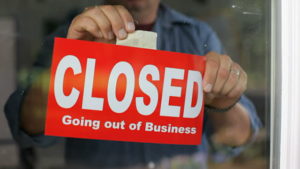


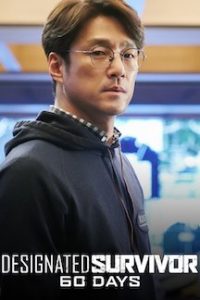


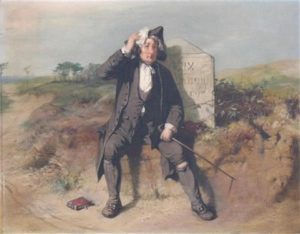
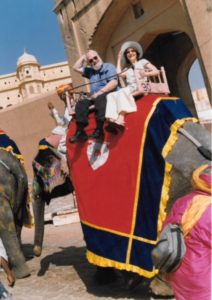
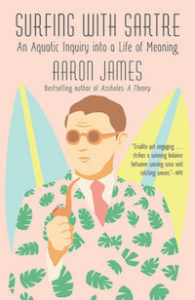
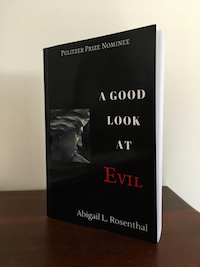
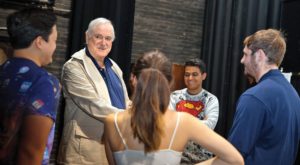

Antony October 31, 2016
Thank you, nice read.